|
Crucial Conversations are an essential disabled artist only online space to talk about important themes and experiences set up by writer and director Vici Wreford-Sinnott. "Disabled artists need spaces to come together and talk. It would be easy to spiral into the bleak exclusion and erasure we consistently experience but during Crucial Conversations this time around we are being encouraged to reflect and share our survival techniques and think about the moments that give us hope. We all need a personal manifesto of hope.
Vici is the final artist to give a provocation of hope to close this series of Crucial Conversations, along side the brilliant artist Dolly Sen. Vici has been part of the Disability Arts and involved in disability theatre for over 30 years. Her current practice based PhD research focusses on radical representations of disabled women in performance. Her work creates new disabled protagonists and disabled narratives to challenges what she has termed 'crip-taking': the cultural theft of disabled people's voices, stories and roles for disabled actors; and, the suppression of disabled-led work which unpicks social, historical and contemporary cultural ableism. We're thrilled to announce that Dolly Sen is one of our provocateurs for the conversation on 'The Current Arts Environment' on Monday 22 April 2.00-3.30pm. An incredible artist, Dolly subverts everyday experiences and accepted norms to magnify injustice and wrong-thinking. She is working class, Queer, interested in disability and the madness given to us by the world. Vici will talk about her work and provide a provocation on our experience of the arts environment as it struggles to rebuild during the latest stages of the pandemic, and how she maintains hope when there is so much uncertainty. We will ask: Where do we go from here and what is the message we'd like to send to those with resources and decision-making powers? We also look at our skills in positioning ourselves as equals. Rather than a negative spiral, which it is difficult to avoid, it would be great if we encourage each other to think about personal manifestos of hope to take away. About Vici Wreford-Sinnott Vici was commissioned by the BBC to write and direct her short film Hen Night creating one of the first ever pieces of broadcast British drama by a disabled women-led team. Films include Funny Peculiar starring BBC Silent Witness actor Liz Carr for Northern Stage and ARC Stockton, Siege was commissioned by Home Manchester and ARC Stockton Homemakers with her accompanying non-fiction series The Wrong Woman Discussions featuring four other disabled women performing in the public eye. Vici’s radio drama The UnSung was commissioned by Durham Book Festival, New Writing North and ARC Stockton. In 2023 Vici was commissioned by Live Theatre Newcastle to write with the love of neither god nor state for Three Acts of Love and is currently under commission to Live Theatre for her play Useless F*cker. Funny Peculiar and Siege are published by Salamander Street and with the love of neither god nor state was published by Methuen Drama in 2023. In 2015 Vici pioneered a significant model of disabled-led practice in a mainstream venue in partnership with ARC Stockton, Cultural Shift, which she has been invited to speak about internationally, and which it is hoped will roll out across six partner arts and cultural venues in the North East from 2024. Vici’s original theatre work includes Butterfly (Best One Person Play 2018 British Theatre Guide, National Tour), Lighthouse (bilingual piece in English and BSL, British Premiere ARC Stockton), Another England (National Tour), The Art Of Not Getting Lost (ARC Stockton and Northern Stage), Vote for Caliban (Northern Stage), Deadly Devotchka (Edinburgh Fringe), Moll Cutpurse: A Comedy for the 21st Century (UK and Ireland Tour). Vici has many directing credits and has mentored many disabled writers to bring their work to the stage. She is a long term collaborator with Full Circle, an ensemble of learning disabled theatre makers. In 2021 Vici was awarded the North East Arts and Culture Award for Outstanding Contribution to the arts in the region. Booking for Crucial Conversations - The Current Arts Environment Crucial Conversations are disabled only spaces - please do not book a space if you are not a disabled person. Disabled artists can book for this event on Eventbrite here. Access We have live captions and BSL interpretation for this event. Please book as soon as possible if you have access requirements and do tell us what you need in your booking form on Eventbrite. Thank you. Crucial Conversations - Disabled Artists: The Current Arts Environment Tickets, Mon 22 Apr 2024 at 14:00 | Eventbrite You can find out more about other Crucial Conversations and provocateurs on our website here. Knowledge Action Change - LITTLE COG We are thrilled to announce that the incredible British theatre maker, comedian, television writer, performer and campaigner Jess Thom is a guest provocateur in our Crucial Conversations For Disabled Artists Series of discussions. For this disabled artist-only space, we've invited Jess to speak on the theme of the power of collective voices in the disabled artist community and the personal labour, often in addition to our workload, involved in working in the arts. This conversation takes place online, is free to attend although you must book a place through Eventbrite and is on Monday 15 April 2024, 2.00-3.15pm. Today's conversation recognises the power of collective voices but wants to explore the personal labour we, as disabled people, put into this. For decades, much of sharing our voices was through direct activism or channelled through disabled people's development organisations. How do we get together, in the absence of meaningful resources and infrastructure to support us, and raise our voices when needed? There are so many examples in our history, in our today and in our tomorrows - but also need protection of time, energy and a shared load. Are there models we could develop in which we safeguard ourselves whilst still having an impact? At this conversation we will have two provocations - one from Jess Thom and the other from acclaimed multi-disciplinary artist Ashokkumar D Mistry. There will also be group discussions allowing us to take away ingredients for our personal manifestos of hope. We aim to use this time to avoid the spiral of negative 'knowns' and focus on ways forward, big and small. About Jess Thom Writer, artist and part-time superhero, Jess Thom co-founded Touretteshero in 2010 as a creative response to her experience of living with Tourettes Syndrome. She campaigns for disability rights and social justice and is on a mission to change the world ‘one tic at a time.’ Jess was commissioned to write Biscuitland by Channel Four which was fully developed and screened in their 2022 Comedy Blaps season, which premieres new and original talent. Jess has written in the mainstream and disability press including The Guardian, The Observer and Disability Now. In 2012 she published Welcome to Biscuit Land – A Year In the Life of Touretteshero, with a foreword by Stephen Fry. Jess is a regular performer at Glastonbury, the Edinburgh Fringe Festival, DaDaFest, Unlimited Festival and Shambala. She made Broadcast from Biscuit Land as part of On Stage: Live from Television Centre for BBC4 in 2015. In 2018 her one-hour film Me, My Mouth and I was broadcast on BBC2 and went on to be screened in the USA, Russia, Chile, Switzerland and Canada. In 2016 Jess took her award-winning stage show Backstage in Biscuit Land on an extensive national and international tour including the USA and Australia. In the same year she received a Wellcome Engagement Fellowship, became an Arts Council England Change Maker and received an honorary degree from the University of Wolverhampton. In 2017 Touretteshero hosted Adventures in Biscuit Land at Tate Modern as part of their Tate Exchange programme, and curated Brewing in the Basement at the Barbican Centre. She also débuted her critically acclaimed performance of Samuel Beckett’s short play Not I. In 2020 Jess took Not I to New York City as part of the Public Theater’s prestigious Under The Radar Festival where it received a glowing review in the New York Times. In 2018 Jess took her stand-up show Stand Up, Sit Down, Roll Over to the USA and Europe, hosted Heroes of the Imagination at the Southbank’s Imagine Festival, and Brewing in Battersea at Battersea Arts Centre. The year ended with Hacks for the Future, a residential theatre project for disabled young creatives in the Highlands in association with National Theatre Scotland. In 2019, Touretteshero received Elevate funding from Arts Council England, a programme which aims to strengthen the resilience of diverse arts organisations. Jess deepened her advocacy work and hosted several facilitated conversations around access for senior managers or organisations such as the Barbican and Shakespeare’s Globe. During the 2020 Coronavirus lockdown, Jess devised and delivered Digital Heroes of the Imagination with the National Youth Theatre and created a Pandemic Postcard for the Harbourfront Theatre in Toronto. Jess has spoken widely in the media about her life with Tourettes, including on Woman’s Hour, This Morning, and Russell Howard's Good News. She has given a TEDx talk at the Royal Albert Hall and features in the Annalisa is Awkward documentary on BBC Radio4. Find our more about Jess's work with Touretteshero here Booking for Crucial Conversations - Collective Voices/Personal Labour Crucial Conversations are disabled only spaces - please do not book a space if you are not a disabled person. Disabled artists can book for this event on Eventbrite here. https://www.eventbrite.com/e/845785285557?aff=oddtdtcreator Access All sessions have live captioning. Please book as soon as possible if you have access requirements and do tell us what you need in your booking form on Eventbrite. Thank you. You can find out more about other Crucial Conversations and provocateurs on our website here. Knowledge Action Change - LITTLE COG We're delighted to announce that multi-award-winning writer and director Cheryl Martin will also be a provocateur at our first online Crucial Conversation reflecting on the progress we've made as a community of artists and activists.
Cheryl has recently taken up her tenure as Artistic Director of Red Ladder Theatre Company. Alongside her work writing and directing award-winning theatre productions, Cheryl has also fulfilled a variety of roles including supporting writers and practitioners at Contact Theatre, Traverse Theatre Edinburgh, and Oldham Coliseum. Cheryl has also worked with Community Arts Northwest on a series of community plays, devised with, and starring mostly women refugees and asylum seekers. In 2015 she co-founded LGBTQ+ Global-Majority performance arts company Black Gold Arts, a celebration in choreography, writing, directing and cabaret, which was part of the Eurovision cultural festival. Black Gold Arts recently won the Best Event category at the Manchester Culture Awards for its free outdoor arts festival at The Whitworth in 2022. In addition to being an Edinburgh Fringe Total Theatre assessor and judge, Cheryl was also Co-Artistic Director of Manchester’s grassroots Global-Majority-led publisher and writer development company Commonword and is Co-Director of Manchester Pride’s Candlelight Vigil. The Progress We've Made feels rebellious & radical, given the current social and cultural backdrop, but we're going to revel in our successes, and come away refreshed with ingredients for our personal manifestos of hope. Booking for Crucial Conversations - The Progress We've Made Crucial Conversations are disabled only spaces - please do not book a space if you are not a disabled person. Disabled artists can book for this event on Eventbrite here. Crucial Conversations - Disabled Artists: The Progress We've Made Tickets, Mon 8 Apr 2024 at 18:00 | Eventbrite Access Please book as soon as possible if you have access requirements and do tell us what you need in your booking form on Eventbrite. Thank you. You can find out more about other Crucial Conversations and provocateurs on our website here. Knowledge Action Change - LITTLE COG We are delighted to announce that the next of our Crucial Conversations provocateurs is the distinguished artist Ashokkumar D Mistry. Ashok is a writer and visual artist working in a range of disciplines including paint, digital art, and film. He works individually but much of his work happens either alongside or in collaboration with others. He is a neurodivergent, multidisciplinary artist, writer, researcher, activist & curator working in the UK and internationally. Subverting technologies and ideologies, he challenges conventional ways of making & viewing art. The second on our series of Crucial Conversations for Disabled Artists is on the theme of Collective Voices / Personal Labour which takes place online on Monday 15 April, 2.00-3.30pm.
Today's conversation recognises the power of collective voices but wants to explore the personal labour we, as disabled people, put into this. For decades, much of sharing our voices was through direct activism or channelled through disabled people's development organisations. How do we get together, in the absence of meaningful resources and infrastructure to support us, and raise our voices when needed? There are so many examples in our history, in our today and in our tomorrows - but also need protection of time, energy and a shared load. Are there models we could develop in which we safeguard ourselves whilst still having an impact? At this conversation we will have two provocations and group discussion allowing us to take away ingredients for our personal manifestos of hope. About Ashokkumar D Mistry Ashokkumar Mistry is a Leicester-based artist, practitioner and researcher. Ashok’s research scrutinises differences to expand our understanding of the human condition that includes impairment and disability. His work is dialogic; encouraging interaction and debate. In an economy of inattentive distraction, his work asks us to pay close attention. By working against the insistence for consistent and reducible product, Ashok issues a challenge to cultural institutions and actively seeks to reshape expectations. Ashok unsettles the mythology of national identity and focuses on the ways in which symbols and images are encoded and naturalised. His work often alights on the entanglement of cultural transmission and mistranslation. Archival images are embellished, remixed, edited and decontextualised to interrogate their latent ideologies. “His words and work — with its swift detours and provocations, its messiness and expansiveness — offers us a productive disorientation. It upends assumptions about good taste, about where things fit or don’t, about what is good and bad.” From Swift Detours - George Vasey. Ashok is co-founder of the Disability in British Art (DIBA) research group within the British Art Network, has delivered lectures relating to arts and disability at UK universities, and is an associate of DASH Arts’ Future Curators Programme. Currently Ashok is a founder member of two disabled artists collectives, ONYX collective and Comrades Mistry has been commissioned to write for British Art Network, Shape Arts and Unlimited. Ashok has also been an Associate Artist with and has written extensively for Disability Arts Online and has also been a Fellow of the International Association Of Art Critics (AICA-UK). Booking for Crucial Conversations - Collective Voices/Personal Labour Crucial Conversations are disabled only spaces - please do not book a space if you are not a disabled person. Disabled artists can book for this event on Eventbrite here. https://www.eventbrite.com/e/845785285557?aff=oddtdtcreator Access Please book as soon as possible if you have access requirements and do tell us what you need in your booking form on Eventbrite. Thank you. You can find out more about other Crucial Conversations and provocateurs on our website here. Knowledge Action Change - LITTLE COG Crucial Conversations are an essential disabled artist only online space to talk about important themes and experiences. We don't get many opportunities to connect communally any more but many of us need to know we're not alone, especially when our social and cultural backdrop is as challenging as it is at the moment.
We have invited a number of incredible disabled artist to give provocations to get our conversations started, we'll discuss what we've heard and then anonymise and publish our findings and disseminate to leaders in the arts. We're thrilled to announce that Dolly Sen is one of our provocateurs for the conversation on 'The Current Arts Environment' on Monday 22 April 2.00-3.30pm. An incredible artist, Dolly subverts everyday experiences and accepted norms to magnify injustice and wrong-thinking. She is working class, Queer, interested in disability and the madness given to us by the world. Dolly will talk about her work and provide a provocation on our experience of the arts environment as it struggles to rebuild during the latest stages of the pandemic, and how she maintains hope when there is so much uncertainty. We will ask: Where do we go from here and what is the message we'd like to send to those with resources and decision-making powers? We also look at our skills in positioning ourselves as equals. Rather than a negative spiral, which it is difficult to avoid, it would be great if we encourage each other to think about personal manifestos of hope to take away. About Dolly Sen Dolly wants to disrupt systems that produce that programming called oppression, not through trojan horse viruses but with my little ponies on acid with a little sadness in their hearts. Dolly is a writer, visual artist, sculptor, public artist and filmmaker. Dolly has been a child alien in the Empire Strikes Back, written over ten books, screwed a lightbulb into the sky, sectioned the DWP, recited poetry in a tree, given a website a psychotic episode, tripa-dvisored a psychiatric hospital, visited California’s Death Row, dispensed an Apocalypse Loyalty Card, created a madvert calendar, worn a wandering womb with a clitoris hat to examine misogyny in medicine, turned fanny prints into a Rorschach test, given Alexa a mental state examination, created Bedlamb, shouted at Freud’s couch, made films about the lived experience of psychosis, galvanised people to Help the Normals, sold nothing on Ebay, subverted 100s of other things and in the process spanked normality’s bottom. Dolly's website is here Dolly Sen – spanking reality arse since 2000 Booking for Crucial Conversations - The Current Arts Environment Crucial Conversations are disabled only spaces - please do not book a space if you are not a disabled person. Disabled artists can book for this event on Eventbrite here. Access We have live captions and BSL interpretation for this event. Please book as soon as possible if you have access requirements and do tell us what you need in your booking form on Eventbrite. Thank you. Crucial Conversations - Disabled Artists: The Current Arts Environment Tickets, Mon 22 Apr 2024 at 14:00 | Eventbrite You can find out more about other Crucial Conversations and provocateurs on our website here. Knowledge Action Change - LITTLE COG We are delighted to announce that the first of our Crucial Conversations provocateurs is the eminent artist activist Caroline Cardus, who has created ground breaking disability art for over 20 years. She works collaboratively as well as individually, to tell stories of lived experience from disability and feminist perspectives. The first in the Crucial Conversations series - The Progress We've Made - takes place online on Monday 8 April, 6.00-7.30pm.
Based on Caroline's experience and her approach, we've invited her to provide us with a provocation about the progress we've made as disabled artists. It’s a preservation approach to avoid spiralling into the usual negatives we know and experience daily, but to take a breath and take hope from the progress we’ve made as individuals or as a movement - perhaps reflecting on key moments in our community's history. As disabled artists there are so few meeting points to come together to get a sense of community and reduced isolation, so Crucial Conversations are created as a space to do just that. We're conscious that both our social and political backdrop is incredibly challenging, and that working in the arts can feel harder and harder. These issues need addressing on a national and systemic scale and usually its over to us and our labour to do that. That's not what this conversation, on this occasion, is about though. It's to give us space away from that. It feels rebellious and radical, but we're going to revel in our successes, individual, personal, and communal. In spite of everything, we are amazing and all the change that has happened for disabled people is because of our community's dogged determination. So if you're fed up of the overwhelming negativity we experience, this is a space to remind ourselves of our strength and power. What hope can we take from this going forward? How do we sustain ourselves? It's important to reflect in this way to gather strength and remind us of our value, especially to each other but also to the wider cultural landscape, to create personal manifestos of hope to move us forward. About Caroline Cardus Caroline Cardus created her ground breaking protest art piece The Way Ahead, provocatively launching it on 1st October 2004 when new anti-discrimination legislation was introduced in the UK. Since then, the exhibition has been continual demand as a Disability Art protest piece. It is now part of the National Disability Arts Collection and Archive (NDACA). Caroline has been artist in residence at BALTIC in Gateshead as recipient of the Adam Reynolds Memorial Bursary, and more recently has worked with Tate Modern, the Wellcome Foundation and was part of 30 disabled artists taking part in a nationwide DaDa intervention in galleries called We Are Invisible, We Are Visible (#WAIWAV) funded by DASH Arts. Her intervention, FED UP, was shown at Milton Keynes Gallery. She is a member of the IN/Visible Disabled Women's Arts Collective and also works as a creative producer, advocate and mentor for other artists. You can find our more about Caroline here Bio — carolinecardusartist.com Booking for Crucial Conversations - The Progress We've Made Crucial Conversations are disabled only spaces - please do not book a space if you are not a disabled person. Disabled artists can book for this event on Eventbrite here. Crucial Conversations - Disabled Artists: The Progress We've Made Tickets, Mon 8 Apr 2024 at 18:00 | Eventbrite Access Please book as soon as possible if you have access requirements and do tell us what you need in your booking form on Eventbrite. Thank you. You can find out more about other Crucial Conversations and provocateurs on our website here. Knowledge Action Change - LITTLE COG News from Artistic Director, Vici Wreford-Sinnott about a new programme of activities creating space to think about anti-ableist practices and creativity. I was recently awarded a project grant by Arts Council England to develop my new solo show - more of that another day - but alongside this work I am committed as ever to creating spaces to connect, develop and promote anti-ableism in the arts. Ableism is a default setting in the arts but it is also a choice - whether the claim is ignorance, not knowing where to start or budget constraints, it is still a choice. So I have created Sp@ce - Knowledge for Action for Change which consists of four creative writing workshops, 3 crucial conversations for disabled artists to connect and reflect (and possibly plot and plan) and a series of three Anti-Ableism Workshops for Arts Sector staff, boards and practitioners. They are taking place across March and April 2024 while I'm writing and preparing to rehearse the new show. I actively invite disabled artists from all communities to be involved so that intersectionality is at the forefront of our creativity and campaigns. Disabled Women's Monologues is a space for disabled women writers - all levels of experience welcome - to spend time in good company exploring the skills needed for monologue writing in your own voice. The sessions will be fun, supportive and accessible. There are three online sessions and one in person at ARC Stockton. The first workshop is on International Women's Day - what a perfect day to come together and be creative. Booking is through Eventbrite and there is a link to tell you more here but these are the dates so get them in your diaries. Places are limited. Friday 8 March - 2.00pm-4.00pm (online) Wednesday 13 March - 3.30pm-5.30pm (online) Monday 18 March - 1.30pm-3.30pm (online) Tuesday 19 March - 6pm-8pm (in person at ARC Stockton) FREE OF CHARGE Crucial Conversations Disabled Artists is a follow up to my previous Crucial Conversation series - which you can read here. They are time for reflection in accessible spaces where disability is a given. It's important to feel connected and to know that other people are having similar experiences to you, and also to share tips for survival in divisive times. We'll share our findings on our website and in our Disability Arts Online Blog. There is a chance to be really positive as we recall pivotal moments of change brought about by disabled people in the arts over the last forty-fifty years. Again dates are below with the booking link further down. Friday 15 March - 2pm-4pm - Collective Voices/Personal Labour Friday 22 March - 3pm-5pm - The Current Arts Environment Monday 8 April - 6pm-7.30pm - The Progress We've Made FREE OF CHARGE Anti-Ableist Practices in Art and Culture is a series of three workshops designed for the arts sector. I'm so excited about them so please tell your local venues, arts organisations and theatre companies about them. Venues and organisations these workshops are welcoming and supportive, and start from where you are. I really want us all to thrive and so it's vital to provide our allies and potential allies with the right information, as more harm than good can be done with ill-informed good intentions. We know there are good people in arts organisations who realise their work will be richer for including missing voices. We want to make that change lasting so have some great advice for exploring and understanding ableism and anti-ableist practice, along with guidelines for taking action which can be embedded into your organisations.
Friday 12 April - 1.30pm-3.00pm - Anti-Ableist Practices Friday 19 April 1.30pm-3.00pm - Disabled Narratives in Drama Tuesday 23 April 4.00pm-6.00pm - Cultural Equity Beyond Access PAY WHAT YOU DECIDE BOOKING You can get more information on our website here, where you will be directed to Eventbrite for booking. If anyone has any access problems with Eventbrite please email us directly at [email protected] An exciting world comedy premiere is taking place at ARC Stockton this month and it’s the brainchild of Teesside based writer and director Vici Wreford-Sinnott, bringing amazing women comedy writers and performers from around the country to showcase their work under the title of Funny Haha, A Comedy (R)Evolution. Vici was writer and director of Hen Night commissioned by the BBC in 2021 and she created one of the first disabled women- led production teams to create broadcast drama in the UK. Vici tells us, “Dreams really can come true. Funny Haha is proof of that! We’re a group of disabled women from all over England who are passionate about making people laugh. We originally got together not knowing where it would take us but three years later and we’ve got a comedy showcase and are launching a book of our work – in just two short weeks!” The writers initially got together after Vici put a call out on social media. She had invited the brilliant Rosie Jones to do a couple of comedy workshops to help survive the first lockdown and couldn’t believe how quickly it became fully booked. “The demand was huge – there’s obviously lots of very funny disabled women out there, and working with Rosie was amazing. People don’t realise all of her writing credits – she’d written for loads of comedy shows alongside her stand up career taking off, including The Last Leg, Harry Hill, 8 out of 10 Cats does Countdown and Would I Lie to You.” Vici Wreford-Sinnott performing as her alter-ego Raquelle Squelch at a Disconsortia DIY Cabaret The Funny Haha group decided that they loved making each other laugh so much that they would stay together and become a writer’s room who met each week – other comedians, satirists and comedy writers were invited in to share their experience including Dolly Sen, Cheryl Martin, Francesca Martinez and Jess Thom. “Jess was part of one of the Writers Room projects we ran and we were delighted that she went on to be commissioned by Channel Four to write a comedy pilot”, Vici added.
The writers in the group are a mix of award winning writers and new cutting edge stand up artists and each of 8 writers will present a brand new piece of original work – JulieMc McNamara, Karina Jones, Honor Flaherty, Porcelain Delaney, Tanya Akrofi, Vici and two other Teesside writers India Robertson and Lynne McFarlane. “There will be something for everyone. Although we are writing as disabled women who want to explode negative stereotypes, we are all bringing something different – there’s stand up, comedy monologues, comic storytelling and character based work.” As well as a warm welcome for the public, the group are very excited to have invited many representatives from the comedy industry such as commissioners, programmers and producers from production companies and venues. Honor Flaherty from the group said, “We’re being bold, we’re putting ourselves out there – some of us are happy tucked away as writers and haven’t performed our work before, so this feels huge. We can’t wait to share it with you!” Another writer, Tanya Akrofi, told us, “We’re shaking off our invisibility and daring ourselves to be fierce. This group has so much to say and has such brilliant ways of saying it – come and join our gang!” Teesside writer Lynne McFarlane said of the event and the book, “The greatest comedy comes from truth, but why let truth stand in the way of a great fabrication. Biography or flights of fantasy, you decide. We’ve had so much fun working on this project that audiences will be able to feel it.” Main Theatre, ARC Stockton and Livestream 27 September 7.00pm Tickets are Pay What You Decide and the book will be available to buy on the night and afterwards from ARC Stockton BOOK TICKETS HERE - Funny Haha Comedy (R)Evolution - ARC | Stockton Arts Centre (arconline.co.uk) For interviews with Vici Wreford-Sinnott please contact email [email protected] Full Circle is a team of dynamic, award winning, learning disabled theatre makers working in collaboration with artists from Little Cog Theatre Company to create professional exciting work for audiences to experience. In 2022 Full Circle performed their hugely successful production of Stomping Ground on a purpose built accessible theatre stage at Stockton International Riverside Festival. Many community groups were involved in the creation of Full Circle's follow up Our Stomping Grounds Festival at ARC in Stockton which was a two day festival celebrating learning disability culture. The company have always wanted to share what they do with wider learning disability communities in the area and after a successful programme of community workshops, including microphone technique for DJs and cabaret hosts, lyric writing, puppetry and portraiture the company are now offering an amazing 10 week introduction to performing arts course, which the group have been designing and is led by theatre director Vici Wreford-Sinnott. For ten Wednesdays from 13 September to 22 November learning disabled people can build their confidence, learn how to have stage presence, work as a team, and explore the vocal and physical skills performers need in lots of fun ways, all expertly delivered for learning disabled people in a bespoke way based on our expertise developed over many years. You don't have to have any experience, but we do ask that people are supported to apply using the attached form, but people can also get in touch with us directly if they'd like to. We will ask you for a bit of information including why you think this would be a good opportunity for you and then we'll invite you in for an informal chat. We only have 8 places available and so it's important to meet in advance to see if you think it's right for you, and so we can see whether we think the course would work for you. We imagine there will be a variety of people requiring different support involved and whilst we have support workers for the course, you would need to bring a support worker if you need one to one support. We love our social time too and all have a good natter over our packed lunches and over a coffee break in the day. You wouldn't need to buy any special clothing but we recommend that people wear loose comfortable clothing, such as jogging bottoms or leggings, a comfy tee-shirt and non-slip footwear. You can find out more in the links below which will take you to an Easy Read Document and an application form. Our contact details are in the info and please don't hesitate to get in touch if you'd like more information. More information and the application form is here Easy Read information is here. IN/Visible Disabled Women’s National Arts Collective
in association with ARC Stockton, Arts Depot London and Little Cog Photo of Kim Tserkezie by Paul Stephenson A unique exhibition entitled On Whose Shoulders We Build is taking place at ARC Stockton at the end of this month to showcase the rich history of disabled people involved in the arts in the North East. Former Balamory star Kim Tserkezie, who played iconic Penny Pocket, is featured as one of a number of creative disabled people. Kim is now an award winning actor, presenter, writer and film producer, running her own production company Scattered Pictures and is a leading and influential voice in the campaign for greater representation of disabled people in the arts and media. Talking about her involvement in the exhibition, Kim said, "I'm so thrilled and honoured to feature in this exciting and important exhibition which demonstrates and celebrates the brilliant and diverse, yet often overlooked, contributions disabled people make to the arts". The exhibition’s Project Manager Vici Wreford-Sinnott, herself a disabled artist, said, “Disabled peoples’ contribution to the arts is often hugely underestimated and has been in the shadows for far too long. Black Robin is a disabled artist and film-maker with a phenomenal catalogue of records of this vibrant community. It seems vital to share them." Disabled people often feel that their voices are not heard, and often great ways to engage with the wider public is through the telling of stories – on stage, in comedies, in films, in portraits, creative writing, photography… the list goes on. Black Robin is creating a new archive to tell the story of the North East’s disabled artists and the initial phase of a website is up and running. He told us, “I’ve documented so much pioneering activity by disabled artists that it seemed wrong for it all to go dusty on a shelf. Arts Council England funded me to spend some time archiving the material and also drawing together an initial list of events – there are already over 100 disability arts events spanning three decades and we’re reaching out for more. We’d love to feature as much as we can.” In the meantime the exhibition shares a ‘wall of fame’ montage featuring many, many disabled artists, groups and events. There are tributes to some of the founders of the movement who are no longer with us, and we have a feature wall of 10 disabled artists from a range of backgrounds, some long established figures and others who are newer to disability arts, including Karen Sheader from punk band The Fugertivs, Paul James a Senior Associate at Live Theatre, international artist Gobscure and Candice Keenan from Teesside’s Full Circle learning disability theatre company. You will have to come along to discover who the others are and more about all of them. Vici said of Kim Tserkezie’s involvement, “We are so thrilled that Kim has been able to make time to take part. She is part of my own children's childhoods and was one of the first wheelchair users in children’s telly. And beyond that she is someone I admire enormously – she is incredibly talented, and also lends her voice to promote the equality of disabled people in film and TV. All of the artists featured are phenomenal. ” The exhibition opens to the public on 28 July and runs until 24 September – do check ARC for opening times. The organisers hope it marks the beginning of a new phase of increased profile and improved education about this important part of our region’s heritage. There is a sound recording of the exhibition for visually impaired people and there is also an online version of the exhibition for those unable to make it along. There is more information here On Whose Shoulders We Build - ARC | Stockton Arts Centre (arconline.co.uk) You have to check out this film from a live event by The Quips aka Cutter // Nash. I'm unashamedly biased because they kindly invited me to be involved and the other artists featured are just mega-brilliant. They put on a five star event!
Gareth Cutter and Gemma Nash held an artistic research project into how disabled artists and audiences are feeling about life in the arts now, after the whole world seems to think we can just go back to how it was before the pandemic. They invited artists to be interviewed and others to create artistic responses to the experience of the pandemic. The Quips culminated in a live radio broadcast which was an hour-long programme of pop and experimental music, political poetry and insightful interviews drawn from the queer and disability arts community which is now available here to tune in to. The live event was shared on YouTube through the Disability Arts Online Channel and you can see the buzz it created in the comments. There were interviews and artistic contributions from amazing people like Quiplash, Karl Knights, R. Dyer, Ruth Malkin, Sonia Allori and George Parker. And Cutter // Nash created some phenomenal sound and visual pieces in response to the experiences of the pandemic. Sonia Allori commented in the chat, "Being here is like collectively exhaling pent up anxiety saved up by us all for the last 2 years" and I would echo that. It felt like a very special event but I wonder who is listening to us. This subject and this work deserves a much greater audience. So please do share it - everyone in the arts needs to hear these voices and experiences. I can't speak more highly of Cutter // Nash for this - we really need to get people in the arts talking and thinking about these important themes too. Cutter // Nash were inspired by broadcasts such as the 1947 French radio show, ‘La Tribune de l’Invalide’, and ‘Gaywaves’, the 1980s British radio programme run in the era of Section 28, its a space for queer and disabled voices to explore the changes, challenges and opportunities brought about by the Covid-19 pandemic, and send a message out to the rest of the world about queers disability narratives. More radical radio is needed - let's turn the volume up! There is a strong tradition of disabled women (inclusive of trans women), non binary people, and comedy in a variety of ways in the disability arts movement in the UK. And disabled men of course, many revolutionaries there too, but we wanted a space for specific things. It's a powerful way to shatter preconceptions of what and who people expect us to be. The list of pioneers who use comedy, humour and satire in their work includes Barbara Lisicki, Liz Carr, Mavis Dishcloth (aka Sue Vass), Francesca Martinez, The Nasty Girls, Triple Cripples - Olajumoke 'Jay' Abdullahi and Kym Oliver. Karen Sheader uses it in her songwriting, similarly Dolly Sen in her cultural interventions, JulieMc McNamara, Jess Thom and Rosie Jones. Tammy Reynolds, Amelia Cavello and Lady Kitt explore, celebrate and explode expectations with drag. As well as excellence in their artform these artists and campaigners bring about radical change, much needed in all disability communities. Through our Funny Haha projects we've met some incredible disabled women comedy writers, some of whom we share more information about below. Last year we ran a comedy writing course, which this year evolved into a comedy writing room. It has proved to be an invaluable space, where we have not needed to explain ourselves, where we have done our very best to be as accessible as possible, where we definitely have been covid safe, where we have reduced our isolation but where we have laughed and laughed and laughed - even at the dark stuff, in fact sometimes especially at the dark stuff. Culture is full of stereotypes of disabled women as passive, simpering, tragedy cases created by non-disabled people, and whilst we acknowledge the difficulties and oppression we face, we also celebrate our complexities as people. We celebrate them and champion greater platforms. We're not a side show - we are very firmly a group of people taking our own cultural agency in a climate where there is little support for this. Comedy is a brilliant tool of transgression and subverting the millennia old myths about disability. And of course the subject of sex came up - an ongoing shady taboo around disability. We've often been presented as non-sexual and disabled kids didn't get sex education at school as it was assumed it would never be relevant for them. This is recent by the way - not in the 19th century! Sex isn't the sole subject of the evening by the way - it inevitably pops up a few times, on our terms, but as I said before - we're celebrating all of our various complexities and the world we live in. There is sex, food, social media, growing up Northern, online dating, biscuits, carers, gynaecology, social media, being 'blind' drunk, politics, punk and lots and lots of laughs in the storytelling. We're holding an online sharing of the work of the writing room with 8 disabled women writers and performers - some will shudder at the mention of that last description but hey, there's a first time for everything. It's on zoom on Friday 24 June, 7.00-8.30pm. Bring a drink and some nibbles and enjoy the show. Tickets can be booked on eventbrite by clicking here and are on a pay what you decide basis - which means you just pay what you like after the event. Introducing the writers: JulieMc McNamara is an outspoken advocate for Disability-led cultural revolution and an award-winning writer, theatre and documentary filmmaker. Her work is driven by social justice and actively seeks out unheard voices from the political periphery. She is co-founder of the Disability film Festival with Caglar Kimyoncu (1999 - 2007) and co-founder with Isobel Hawson of the Disability-led theatre company Vital Xposure, where she was Artistic Director until 2020. She is also a survivor of Long Covid and currently socializes as a human condom to model spatial integrity and the inclusion of Disabled people in social spaces. She is presenting 'Bursting Your Bubble - When Dreams Turn to Dust'. Pronouns - She/ Her/ Sir Honor Flaherty is an aspiring disabled writer from Leicestershire. After a successful career in professional theatre production, she decided it was time to take her writing dreams seriously, so she successfully completed a MA in TV Screenwriting. She has had some moderate successes with published short stories, and co-written a short film called Pop. She was also a co-writer on a feature film called 50 Kisses, which was produced by London Screenwriters Festival. More recently she has completed the Comedy Lab Sketch Writing course with Soho Theatre, as well an array of courses with Little Cog, DANC, Theatre 503 and The Lyric, Belfast. She is currently part of Leicester’s Curve Theatre playwriting scheme. Honor is presenting Biccy-Wiki-Doodah. Tanya Akrofi is a writer and oral storyteller who has an ongoing fascination with fairytales and folklore. As a workshop facilitator for children and adults, her ambition is to reconnect all of us, with the healing power of oral traditions. Her inspirations range from the Anansi tales of her Ghanaian childhood, to Angela Carter to the local tales of the Lincolnshire countryside. She is a South London Gyal living in Lincoln. Pronouns - she/her/hers India Robertson is an artist and storyteller, using various techniques to entertain and sometimes inform. Her goal is to create innovative and comedic work with subtle political undertones to make the audience feel challenged, entertained, and refreshed. She is presenting 'Swipe Right'. Porcelain Delaney is a Performer/ Writer based in Salford. Whilst working as a performing artist Porcelain grew frustrated at the lack of characters and stories that reflected her and those around her, So she started writing to share lesser told narratives. Porcelain has completed courses with: The Royal Conservatoire of Scotland, The Royal Central School of Speech and Drama and others. Her first play ‘Breeding Machine’ was longlisted by The Royal Court and awarded Arts Council England funding for development. Her second play ‘Nameless’ debuted in 2021 at DaDa Fest. Her Short story ‘Inspiring’ was longlisted by The Aurora prize for writing. She performed her monologue play ‘Reflection’ on BBC radio. She is presenting an extract from 'Breeding Machine' which is a longer solo show. Karina Jones is a visually impaired actor, aerialist, belly dancer and vocal coach from Wales. She trained at Liverpool Hope University and The Royal Central School of Speech and Drama. She also works as a voice and accent coach, an audio description consultant and is a qualified NLP practitioner. Recent work includes performing in Macbeth at Leeds Playhouse, and Pride and Protest by Kaite O’Reilly for BBC Radio 4. Karina was invited to speak on audio description at the Riga International Circus Conference in Latvia. She was audio description consultant for the Young Vic’s production of The Secretaries. Through Extant Theatre Company’s Directors and Writers Pathway courses, Karina is currently developing her own work due to be showcased soon. A wealth of performance experience Karina has worked with a range of companies including Graeae Theatre Company, Original Theatre Company, Extraordinary Bodies and National Theatre Wales. karina is presenting an extract from her solo show in development 'Blind Drunk'. Lynne is an experienced writer, editor and proofreader who gained an MA in Creative Writing from The Open University. She has a long history in the publishing industry but now works in a freelance capacity as a writer. She will be reading her piece My Roots are Showing about growing up Northern, talking about her mam and dad and her. Vici Wreford-Sinnott was recently commissioned by the BBC to write and direct Hen Night, which is still available to watch on BBC iPlayer. She is passionate about creating new disabled protagonists and recent work includes the radio drama The UnSung with co-creators Mandy Colleran, Cheryl Martin, Caroline Parker and Jacqueline Phillips. She produced a number of lockdown productions including Funny Peculiar starring Liz Carr (BBC Silent Witness), Mandy Colleran and Bea Webster. She was commissioned by Spare Tyre to create A Site of Suitable Scale and continues to explore safe, accessible models of practice for the Covid-era for disabled practitioners. Her alter-ego, Raquelle Squelch, hosted the DIY Cabaret at ARC Stockton for Disconsortia, but she currently resting in some binbag dust at the back of the wardrobe. Vici is presenting her monologue 'Jean's On TikTok'.
Pronouns - she/her Crucial Conversations Crucial Conversations are a series of discussions created by disabled artist Vici Wreford-Sinnott to provide spaces to discuss important issues for disabled artists. There is an absence of these disabled-led spaces and we’d like to see more of them. We acknowledge the work of other disabled artists and disabled-led organisations also having similar conversations – we’d love to be able to collaborate and unify our voices in a continued show of strength to bring about change. These conversations are beginnings, are not endings, are not definitive and are not exhaustive – there are many, many voices which need to be heard. It is an honour to have been joined by those who could make it along on these occasions but there is also more to be done. Background This conversation – Disabled Playwrights’ Legacy in Print - Where Is It? - took place as the result of a twitter exchange last year between Vici Wreford-Sinnott and legendary playwright Mark Ravenhill. Mark put a call out for plays he could recommend to a colleague, and Vici suggested ensuring that plays by disabled playwrights were added to the list. And then began the search for published disabled playwrights. And whilst we were able to pull together a small list of fantastic works after twitter call outs, the sheer volume of work which has been written, performed, and toured but remains unpublished and therefore without the same legacy as our peers, hit home. Where are the published works young disabled people can see themselves reflected in, the plays which tell the stories of our lives, the authentic protagonists who excite, engage, taking us on either fantastical journeys or into gritty realities. And the ones which are published, do they all sit together somewhere as part of the canon, visible and celebrated? This conversation aimed to begin examining why our work doesn’t get published, and what we want to do about it as a community of writers. There had been suggestions in advance of publishing retrospectives in anthology form, talking to publishers, creating a script depository so that the unpublished scripts are available to read and potentially be performed by others. From the outset it was imp0ortant to be clear that this is a beginning, with none of those creating the space, in a position to resource a final outcome. We knew that actions may arise from the meeting but equally they may not. It was entirely dependent on who attended, what was discussed and whether people feel they have capacity to move things forward. You can still get involved This conversation is just a beginning and if you couldn’t make it along to the session it doesn’t mean you can’t contribute or get involved. You are invited to contribute responses to the questions asked during the zoom. There is more information on this here Playwrights in Attendance Huge thanks to the incredible playwrights who came along to share their views and experiences - Tanya Akrofi, Leanna Benjamin, Paula Brett, Laurence Clark, Robbie Curran, Daneka Etchells, Amy Evans, Matthew Gabrielli, Cheryl Martin, Ali McLean, JulieMc McNamara, Josh Merrit, Yaz Nin, Tom Ryalls, Fatima Serghini, Simon Startin, Jess Thom, Tom Wentworth, and Naomi Westerman. (No-one knowlingly left off this list and further names to be added as other contributions come in!) Introduction to the meeting Welcoming people to the meeting were Vici Wreford-Sinnott (writer, director, AD Little Cog) and Mark Ravenhill (playwright, AD King’s Head Theatre). Vici gave an overview of the meeting aims, what would happen and provided access information. She thanked Mark Ravenhill for his support of the conversation and introduced him. Mark Ravenhill, Playwright and Artistic Director and Joint CEO of The King’s Head Theatre Mark said it was an honour to have been invited to co-host and was pleased to have been able to support it with setting it up through the King’s Head Team. He thanked the team for their work. Mark talked about his early career as a playwright, how his very first couple of plays weren’t published and that he’s probably glad of that fact, feeling better about more developed works being published. Methuen published his first major play Shopping and Fucking and have published all plays since. Musicals and operas are different. He doesn’t doubt the transformative impact on a career that publishing can have and is aware that, while all publishers have slightly different criteria, publication is usually attached to a production and that most sales take place during the run of the play. The good news about this country is that more plays are published here than any other country and has been the case for about 35 years. The life and legacy of your play is totally transformed when your play is published, bookshops, libraries, schools, and Vici is spot on to see that the life of unpublished work is totally different. I’m aware that being published has made awareness of my work very different. Mark said that he was mainly here to listen and learn and looked forward to hearing the discussion. Guests We introduced our guests Matt Applewhite from Nick Hern Books and Katherine Murphy from Playography, a digital online resource, at the Irish Theatre Institute. They were here to give us an overview of their work and offer possible thoughts and reflections on the conversations. All of our guests’ work has real relevance to our conversation. Matt Applewhite – Managing Director and Commissioning Editor, Nick Hern Books. Matt started by thanking everyone for the invitation to come along to the conversation and acknowledged what a challenging few years we have all had. He said he was keen to listen to everyone’s thoughts and added that it feels like a time of opportunities for change on issues which affect the industry. NHB was established 34 years ago and have published about 1000 plays which are in print at the moment, and books about theatre written by and for practitioners. In a good year, NHB publish 80 to 100 plays. The main criteria is that the play is getting a professional production (a run of minimum 3 or 4 weeks). This is because it feels that partly through development, rehearsals and production the play is being activated by actors, directors, designers etc and so it becomes something that is ready to commit to the published page. With a published play, NHB is looking to create something to be read, performed and done so in quantities that make it feasible for them, given that play sales are small. Matt noted that a lot of things are trying to be balanced - artistic merit, long-term list building, a responsibility in building a canon of work. It means to some extent publishing is fairly reactive and reflective of what is on the stage. NHB hopes not to carry an unconscious bias about work being performed and over the last few years, there has been a focus on voices that have been marginalised. Theatres have also become more diverse. Matt said that they feel the responsibility to shape what dramatic work can be. And have had various discussions about an anthology of deaf and disabled writers and he mentioned publication of Crip Tales and the fact that Tom Wentworth, one of the writers, was present at this conversation. Matt said that there is more to do, work to be done and that he was looking forward to hearing all ideas from the conversation. Katherine Murphy - Playography Editor, Irish Theatre Institute Katherine thanked everyone for the invitation Vici and Mark for organising the event and gave an overview of how Playography works. It was developed and is managed by the Irish Theatre Institute and was set up around 20 years ago and is an online searchable dash database with two strands: Irish plays written and produced in English language and plays which are written and produced in Irish language. Each play contains name of playwright, synopsis, cast size and there are currently over 4,300 entries. Information is taken from the programme of opening night to keep the database consistent. Where this is not possible, information is taken from other sources such as a publisher or press cuttings etc. Pieces are gathered by a team of two who do the day to day running of the database. Then there is oversight from a board of co-directors, an expert advisory panel which engages with topics like what gets included on the data base and they help to consider whether a play is regarded as ‘professional’ and look at how to include digital theatre. The Advisory Panel changes every 5 years and tends to have playwrights, directors or academics on the panel. The parameters of the model and its management were set up 20 years ago. Digital e-plays are available for sale, with over 120 plays included. Where authors haven’t been published in traditional way, the work is available in a PDF and can be purchased for around 20Euro with 11.5E going to the playwright. This is a flagship program of the Irish Theatre Institute. The foundation of the project is to ensure plays can be discovered in the future, read and performed again. The database provides information about where to purchase a play (sometimes this is done via an email to a playwright or company), information about rights (both professional and amateur) and to allow for future performance opportunities. Katherine concluded by saying that, as we might guess, there are challenges in maintaining an extensive online play depository. The organisation has a lot to do in the way of accessibility and this discussion is happening already so they are looking forward to more discussion around this. The conversations We had 8 break out rooms considering four questions during the meeting, of which we have a longer set of notes. Each group was asked to bring three main points back to the collective. Question 1 - Given the low numbers of published works by disabled playwrights compared to what both what we know has been produced and what has been published by non-disabled peers, what do you think is behind this? What is our experience of submitting/not submitting work? Have we submitted our work and's not been accepted or have we not submitted work because we didn't think it was worth it? Group 1
Question 2 - For context, sometimes as playwrights, we work in different worlds of theatre – independently with a self-created company of colleagues, project funded perhaps, sometimes writing in isolation with a view to submitting to venues, companies and competitions, or we may have been commissioned by an established venues or company. Are we being supported to write – how and by who? And where do we get good critical feedback on the work? Group 1
Group 2:
Question 3 - Are there suggestions we could make to publishers about the unpublished body of work that already exists? Group 1 1. Conventional scripts aren’t always the best format – often we write performance texts, or challenge and push form. 2. We need informed disabled leadership in the publishing houses – people who get the value and relevance of work which has been missing. It would need really good marketing but could be done. 3. Photographs/ scripts/ plans/ recordings need to be disabled artist led Group 2
Question 4 - What other methods are there of raising the profile of the work and sharing it? A centralised library of published works? Pros and cons of a script depository for access to unpublished scripts. Group 1 We veered between the two questions.
Group 2
Conclusion to the meeting Matt Applewhite’s Concluding Comments and Advice. “It's just been really fascinating and fantastic, and a really important conversation. I hope it's just the start of it. As you said right at the start, Vici, 90 minutes was not going to seem like long enough time and it hasn't. I would just say that, you know, I was hearing about the barriers that there are to publishing which I would very much like to feel that we can play our part in dismantling. I mean I can only speak for ourselves, and we have a long way to go. I know that we're sometimes slow, with the best will in the world, we can't publish everything we get sent. We don't go out and solicit scripts often enough, but we do want to assure everyone here, and beyond, when you digest all the information from this meeting, that we want to read and respond to as much work as we possibly can. We need that to be in advance of the production, so that we can consider a publication alongside, but I was really interested by the ideas about ways we should think differently and market our work differently. And the idea that the published text isn't necessarily the best format for all sorts of work. There's just been so much food for thought for this which I'm going to take back to the team. Just to reiterate my door is always open – my email can be circulated to everyone when we send out notes and I’m happy for people to be able to contact me by email or by Zoom or phone or whatever means of communication is best for you. But finally, please keep writing. We need your stories, we need your voices. And thank you very much for everyone's contribution for having me along. Thank you.” Katherine Murphy’s Concluding Comments and Advice. “I'd just respond to a few bits and pieces in relation to a digital repository - the first was about the comment of not making the work available for free, which I totally and utterly understand and am on board with. And the copyright question, to address that from how it works at Playography. The information that's available online on Playography is only that kind of basic information available when you're advertising a play, with the addition of for example, extra members of the technical team, etc, and the information about the performance dates. There's no other copyrighted immaterial publicly available online. You have to purchase any play in order to physically get it and when you get an e-play there is a note about copyright included on every single script that goes out. In terms of subsidy, I absolutely think that is something worth exploring. I think in terms of developing a resource - a phased approach is probably best. I'm brought to mind of that old saying ‘how do you eat an elephant? One bite at a time’. We broke down essentially the last 100 years into three phases, [and this was of all playwriting in the Republic of Ireland] - the first phase of research which covered about 50 years or so did take two and a half years to complete. So realistic time frames are crucial. The other thing is about the script possibly not always being the best model and the approach for published work is really interesting to include texts where you might find that otherwise they get lost in a moment in time. To preserve them. And the last thing I want to say and it's something I didn’t mention at the start but probably should have, is that one thing that in the founding of Playography, is that it's enabled to us look numerically at the canon and we have produced a number of findings reports now based on this, on things like writing in the Irish language, things like theatre for young audiences - one on disability is largely overdue and we will need to look ourselves at how we go forward with that. But I suppose it’s just to think about if you are looking back to kind of look forward, as it were, about measurement and about those figures, because when you have the facts and figures in front of you, it makes your case a lot stronger, and we have found that in the past. So that’s just a quick response anyway to a lot of great points raised and thank you so much for having me here today. I have really, really enjoyed hearing all of this and feel very invigorated going forward, so thank you.” Taking Things Forward
What Next? It might be a good idea to arrange another couple of meetings to discuss if there is a will to move things forward, discussing main themes of an exploratory phase and flag up some potential partners. With a view to a very tangible outcome and avoiding becoming an ongoing series of talking shops. We’d be mindful of everyone’s time and capacity. Please confirm to [email protected] if you’d like to attend a further chat. Acknowledgements – specials thanks again to all the playwrights, and to Mark, Matt and Katherine. The conversation took place online on 13 March supported by Little Cog, King’s Head Theatre and ARC Stockton. Thank you to Arts Council England the funding from which covered access costs for the meeting. Crucial Conversations were a series of discussions created by disabled artist Vici Wreford-Sinnott to provide spaces to examine important matters of the day, in response to the fact that the conversations just weren't happening with any level of scale and our voices are not incorporated into planning for the future in any meaningful way. Millions of disabled people from all of our communities are being left behind in the approach from the arts to a return to 'in person' art and culture. There is a serious absence of these spaces, these conversations and we’d like to see more of them. We acknowledge the work of other disabled artists and disabled-led organisations also having similar conversations – we’d love to be able to collaborate and unify our voices in a continued show of strength to bring about change.
Not everyone could make the meetings but we invite all disabled artists to add their voices to these conversations - we need to get our voices and the exclusion we are experiencing out there. Disability drops to the bottom of everyone's diversity agenda and often isn't visible at all. Disabled people from a range of communities and backgrounds often experience double, triple and more discrimination whether that is in relation to race and ethnicity, gender identity, LGBTQIA+, age, multiple conditions, learning disability, mental health, neurodivergence, education routes, institutionalisation, benefits & employment status and class. We need unity and a cohesive voice. We have to be clear - these conversations hold only the power they are received with in the mainstream arts sector, funders and policymakers. Vici is not an appointed official of any kind, she is a freelance artist committed to community and collectivism. There is a much wider responsibility by those better resourced than we are. These conversations should however be seen as a call to action and an education to the arts sector. There is work to be done. These conversations are beginnings. They are not endings, are not definitive and are not exhaustive – there are many, many voices which need to be heard. It is an honour to have been joined by those who could make it along on these occasions and their eloquence, emotional labour is seen and valued, their voices heard. They are not whispers on the wind. Do not make them so. The aim of each meeting was to promote the space for people to come along, have a conversation, respond to a series of questions and then we would release blogs into the public domain to reflect the voices of those who attended, the transferability of their experiences to disability equality and access broadly and illustrate how they might inform future conversations. Such conversations need to be large scale, public, publicly funded, disabled led, and include the voices of disabled people from all communities. Disabled people should not be 'hand picked' - we need to hear diverse voices. To segregate disabled practitioners into national portfolio funded and independently funded is incredibly unbalanced and serves no one well, and has created division in the disability arts sector where there needs to be much more equality of representation and thinking. Disabled artists can still get involved and add your voices. The three conversations we held were: You can click on the links above to read the blog reportage of the conversations. We'd love you to add your voices to a campaign for change which includes involving disabled people in planning for the future of the arts, not at a fringe level but as significant cultural contributors. The questions each conversation posed can be found below for information and also in a document available here to download and email to us. Access Riders and Their Role in Disability Equality We looked at the scope and scale of disability in the UK and reminded ourselves that there are over 14.1 million disabled people living here from all communities and backgrounds. Disability is a huge umbrella term, which we acknowledge not everyone chooses to use to define themselves. We were thinking about the societal and systemic barriers anyone with a long term or lifelong condition experiences where accessibility is required. We talked about disability rights, community action, solidarity and disability pride. Group conversations focussed on :
You can access the access rider template and information here. Just what is the 'new normal'? This conversation was held because many disabled people feel they are left out completely of the return to 'in person' arts and culture activities, and are concerned that the lack of guidelines about safety for everyone has led to a mistaken perception of safety. A position of just getting on and 'living with covid' actually misinforms and hides the fact that many people just can't do that and are having to stay at home. It really does need further discussion as the arts face the biggest moral dilemmas in a lifetime. And the idea of any kind of normal is a complete misnomer. Normality is a construction to suit a dominant ideology that ensures difference of any kind is 'othered', distanced and removed. This isn't simply about disability equality, which is a big enough social phenomenon on its own, it's about how we are being manipulated to think and behave as a society, a so-called democracy where the arts should be at the heart of truth. When you add your voice to this conversation, you will see from the existing blog that peoples' responses in our 90 minute meeting fell into a series of headings, these weren't prescribed beforehand, so if new headings are needed please create them. The respondents were answering from their own perspectives and not there to represent everyone and everything. 1. What was the old normal like for disabled artists, reflecting on your experience and observation? 2. How would you characterise the last two years (the pandemic) in terms of disabled artists experiences of the arts? What changes did you experience? 3. What moral (and legal) dilemmas are the arts facing, or not facing, up to? 4. What do we need to fully participate – audiences, participants, artists, leaders? The question is what should arts funders, decision makers and artists be thinking about to make sure those shielding and living with Long Covid can be included? 5. Anything else you'd like to add. Disabled Playwrights' Legacy in Print - Where is it? This conversation aimed to examine the lack of disabled playwrights' work in print and how that impacts our artistic and cultural legacy as a result. We were to look at possibilities to redress the balance and to raise the profile of disabled playwrights' work. Vici Wreford-Sinnott (Theatre and TV writer/director, AD of Little Cog). We were joined by Mark Ravenhill who co-hosted (playwright and Artistic Director & Joint CEO of the King's Head Theatre), Matt Applewhite (Managing Director and Commissioning Editor, Nick Hern Books) and Katherine Murphy (Editor, Playography at the Irish Theatre Institute) and an amazing group of disabled playwrights, all credited in the blog. Question 1 - Given the low numbers of published works by disabled playwrights compared to what both what we know has been produced and what has been published by non-disabled peers, what do you think is behind this? What is our experience of submitting/not submitting work? Have we submitted our work and's not been accepted or have we not submitted work because we didn't think it was worth it? Question 2 - For context, sometimes as playwrights, we work in different worlds of theatre – independently with a self-created company of colleagues, project funded perhaps, sometimes writing in isolation with a view to submitting to venues, companies and competitions, or we may have been commissioned by an established venues or company. Are we being supported to write – how and by who? And where do we get good critical feedback on the work? Question 3 - Are there suggestions we could make to publishers about the unpublished body of work that already exists? Question 4 - What other methods are there of raising the profile of the work and sharing it? A centralised library of published works? Pros and cons of a script depository for access to unpublished scripts. Getting Involved and Adding Your Voice - document here ***Please note we are not a regularly funded organisation and these conversations were funded through a personal Arts Council projects grant to an artist. We do not have the capacity to deliver large scale national campaigns without support and resources. We need to be in this together, pulling together, building community, pooling resources and offering support. Crucial Conversations
Just What is the New Normal? Background This is the third in a series of Crucial Conversations with disabled artists. The first crucial conversation was with arts venues and organisations, presenting them with the Cultural Shift model of disabled-led practice in mainstream venues. We held a conversation about the role Access Riders can play in both easing the continued labour expected of disabled artists to explain and re-explain their access requirements to partners, venues, and commissioners. The more access riders we create, the more familiar the concept becomes to everyone, with a ripple effect towards increased accessibility in the arts. They can’t do that alone of course, but they can bring influence on the bigger picture. We also held a conversation co-hosted by legendary playwright Mark Ravenhill about the lack of legacy in print. News about that soon. All the Crucial Conversations have connecting points, and ultimately have created a space for disabled artists from all communities to talk about key matters of the inequalities and exclusion we still experience, compounded by a ‘return’ to the real world during a global pandemic. This is the report of a 90 minute conversation and is quite long. Why do we need to talk? So why is this conversation about the ‘new normal’ happening? As someone who has been shielding for two years, along with millions of other people, I have protected myself and others. However, the way the arts sector is behaving when the pandemic is still raging is just not normal. The arts are facing some of the biggest moral dilemmas in living history. Attempting to work in art and culture before the pandemic, we were a long way from reaching anything like equality for disabled practitioners. There seem to be other layers of things to consider now to avoid a two-tier arts sector. Spaces aren’t being created on big enough platforms for these conversations, with many disabled people saying that they feel silenced, ignored, guilty and worried about it affecting their careers if they speak out, so we are getting together anyway. You can still get involved This conversation is just a beginning and if you couldn’t make it along to the session it doesn’t mean you can’t contribute or get involved. You are invited to contribute responses to the questions asked during the zoom. There is more information on this here A call for allyship The responsibility is largely falling yet again onto the shoulders of disabled people to make our case. Aware of the emotional labour involved in talking about these matters in solution focussed ways, we decided to approach this conversation as reportage. And very much with a view to sharing this blog about the conversation with the wider arts world with an expectation of acknowledgement and action from publicly funded arts organisations. **Cue** – acknowledgement and action please. 1. Share this blog with a comment of support on social media, 2. Get in touch to arrange a bigger conversation, 3. Take affirmative action supported by disabled people, and 4. See this as both a learning opportunity and an opportunity to create something ground-breaking for arts and culture as we move forward. Joined up thinking strategies We need a national plan of action with suitable support for venues and organisations to develop their understanding of disability equality in practice, and to pay, largely freelance, disabled artists and practitioners for their time and expertise. We need some joined up thinking and to develop some models of excellence not exclusion! We saw for a while how the arts sector could adapt to new ways of working, learn new and relevant language, and respond to the needs of people in the pandemic. It even went a long way towards creating accessible opportunities online and disabled artists had access to people, events, and opportunities that they might not have had before. It was still far from perfect, but equality and access appeared to be finally on the agenda in many places. The voices of disabled campaigners were being heard in places that hadn’t previously listened. The return to real world events has been gradual, many venues offering social distancing and insisting on mask wearing, a handful continue to offer work online and there has been much talk of ‘new hybrid’ ways of working. And then what happened? Suddenly the ‘pandemic is over’ and we have to ‘live with it’. Millions of people are still shielding, many silenced and shouted down, many afraid to speak out as the times feel hostile to disabled people. We feel written off by the language around inevitability and we are being left behind. Many disabled people have no choice but to return to unsafe environments for financial survival or have to fight hard for safer environments. The moral dilemmas in facing the return need open discussion. There are legal obligations too. Provocation - Just what is it going to take to have an egalitarian cultural sector with the equal involvement of disabled people, reflecting our pluralistic nation? The conversation reportage The following four questions were posed for our conversation and you can read the points raised below each one. Although the comments are anonymised, it was important to us that they remain in the voices of those in the conversation. They are not exhaustive but strongly indicate that the arts sector cannot brush us into the dust under the carpet.
Everything has been gathered under headings and are presented as bullet points. It’s not scientific research but these conversations are important, and these voices need to be heard, with due consideration to the requirements of a whole community. 1. What was the old normal like for disabled artists?
2. How would you characterise the last two years (the pandemic) in terms of disabled artists experiences of the arts? What changes did you experience? Initially
Campaigning voices
Changes in access
Digital/Online
Practice
Funding and Financial Sustainability
Safety
3. What moral (and legal) dilemmas are the arts facing, or not facing, up to? Returning during a pandemic
Accountability
Penalties
Solutions
4. What do we need to fully participate – disabled audiences, participants, artists, leaders? The question is what should arts funders, decision makers and artists be thinking about to make sure those shielding and living with Long Covid can be included?
Acknowledgements – this online meeting took place on Friday 11 March 2022. A massive thank you to the disabled artists who attended this conversation: Sue, Austin, Mandy Colleran, Gareth Cutter, Honor Flaherty, Pauline Heath, Steph Robson and Tommy Watkin. Thank you to Black Robin for their separate comments for inclusion in the blog. Thank you to all the disabled practitioners having conversations like this across the country and campaigning for an equal return to the arts for disabled artists, audiences, participants and staff. Vici Wreford-Sinnott March 2022 [email protected] Funded by Arts Council England and supported by ARC Stockton. USEFUL LINKS FROM LITTLE COG Cultural Shift – Ideas for your venue and disabled people A Guide to Developing Access Riders Accessible Online Meetings Social Model, Disability Equality Ethos, Crip-Taking A guide to including disabled people in the performing arts. FROM SUE AUSTIN – Multimedia, performance and installation artist You can find out more about Sue’s work here: www.wearefreewheeling.org.uk www.immersedin360.com Review written by Aruna D’Souza having seen ‘Creating the Spectacle!’ exhibited during Radical Love Exhibition, (The Ford Institute, New York, June to August 2019): https://brooklynrail.org/2019/11/criticspage/Living-Without-Gravity Featured TED speaker - Ted talk presented at Talk of The Day on TED.com: https://www.ted.com/talks/sue_austin_deep_sea_diving_in_a_wheelchair/details?language=en Vici Wreford-Sinnott writes, "This is a call to action, as all the conversations are in this series are. Disabled Artists please develop Access Riders as tools of empowerment and activism so that they become common place, and that talk of access becomes common currency in employment and engagement in the arts. It's not the only thing we can do but it will be a part of a campaigning wave. We’re also calling for greater platforms for these conversations please. Share this information and contact us at Little Cog to discuss this further. We are being left behind at an incredible rate as the arts push forward."
This blog is written after a workshop on developing Access Riders. You can still get involved This conversation is just a beginning and if you couldn’t make it along to the session it doesn’t mean you can’t contribute comments for the 'points made' section. You are invited to contribute responses to the questions asked during the zoom. There is more information on this here Some voices are still completely missing from the arts aren’t they? It’s glaringly obvious and all of us know it, the whole arts sector I mean, but the parts that feel difficult, awkwardly shaped or like they might involve a bit too much thought are being quietly swept into the dust under carpets. It feels essential to me to create spaces where disabled artists can come together to talk where we are not silenced or hushed into embarrassment or guilt for talking about things we are still being excluded from. The important things about our experience and the spaces we feel left behind from. We see the rolling eyes and sighs – we just want to talk about the art too but there is too much in its way. There have been some huge disappointments recently as it dawns on us that only some members of our community are going to be involved in the arts going forward in current circumstances. A lot has to change. Again. Groundhog day for equality conversations. Real life exhaustion. Again. We have to ‘make a case’ and prove our worth for everything. Importantly in these conversations it is vital to note how far our community has come, the change we have campaigned for and the progress we’ve forged. The Disabled Peoples’ Rights Movement has existed for over fifty years but so few people know about this or acknowledge it. No-one is educated about it as it’s not included in any way in our education systems. It seems niche and insignificant but when we remember that 20-25% of our population consists of disabled people who experience barriers and exclusion every day, it really isn’t good enough. As a society, we still speak in hushed tones about disability as if it’s a tragedy, when in fact 70% of us will become disabled as we age as a natural part of life. It’s ridiculous that we don’t talk more about it and prepare a more accessible world. Instead, we’re still shutting people away. I was so lucky to be awarded an Arts Council England projects grant and to have continued support from ARC Stockton where I am an Associate Artist, to be able to put together my programme of Crucial Conversations and some artist development workshops in playwriting and comedy. More of them in future blogs. I have met with some incredible disabled people recently. I thrive in a safe accessible environment which is ‘disability comfortable’ and creative. I don’t live in a vacuum – ‘some of my best friends are non-disabled people’ – but I do love it when disabled people get together. It reminds me I’m part of something bigger and I’m keen to remind other disabled artists of that too. The first Crucial Conversation for disabled artists I held was about developing Access Riders. And of course it was about much more than that – reflecting on our community and its achievements, remembering we have peers and allies, and positioning the scope and scale of disability in the UK as a social phenomenon. An Access Rider is an effective tool to take control of our own access requirement communication with those we work with. We remove the ‘medical model’ perceptions that there is a list of things a disabled person ‘can’t do’ and replace it with a list of specific barriers which need to be removed to make the working environment accessible. Removing barriers has actually been the law since the Disability Discrimination Act of 1995, replaced by the Equality Act in 2010 and yet we’re still having to come up with ways to make this an expected part of the terms and conditions of working with disabled people. We are put in the position of reminding venues, organisations, funders, partners and commissioners that access is a right and not a favour. Access Riders can take a while to put together, and they do involve emotional labour in their development and sharing. They are still a relatively new tool, certainly in large numbers, but they have the potential to create ripples of knowledge on an individual level where it still feels like a form of activism to create and present one, through to being a wave of a campaign in much larger numbers. Venues and organisations cannot continue to rely on small pockets of knowledge about disability equality as they arise, often where the disabled artist ends up being free educator into the bargain. Not fair, not right and not paid. As we began the creation of our Access Riders, we discussed access at both societal and personal levels, and how this translates into art and culture settings. This is not new information to the participants in the session or to any disabled people, but it seems not to be considered by the majority in the institution that is 'the arts'. The contents of this blog are not exhaustive but are derived from a 90-minute conversation. Imagine what more we could do with greater investment. The following points were made:
So – the evidence is here. This is the additional labour for disabled artists, and this is how incredibly insightful disabled people are into wider cultural equality, involvement, and genuine pluralism. Look at this insight in a short one-off, if somewhat, Crucial Conversation. This is a call to action, as all the conversations are. Disabled Artists please develop Access Riders as tools of empowerment and activism so that they become common place and that talk of access becomes common currency in employment in the arts. It will be a part of a campaigning wave. We’re also calling for greater platforms for these conversations please. Share this information and contact us at Little Cog to discuss this further. We are being left behind at an incredible rate as the arts push forward? You can find advice on creating an Access Rider here: Little Cog Guidelines on Creating an Access Statement/Rider Acknowledgement: Thank you so much to the disabled artists who took part in this conversation. Tommy Watkin, Liz Barker, Steph Robson, Matthew Needham, Eleanor Walsh, Midnight Memphis, and Olga Macrini. Solidarity always. Thank you also to all the other disabled practitioners and disabled-led organisations promoting access statements and riders and working hard in this area. Vici Wreford-Sinnott talks about three Crucial Conversations she is hosting as part of her Arts Council England funded project Transformers. There are some conversations disabled artists just need to have but there aren’t many spaces to have them. I’m hosting three conversations that I really feel are important to disabled artists at the moment. They’ve come about from conversations with other disabled artists about what is still missing for us. The conversations are free, accessible and are happening online. There is a session aimed at disabled artists wanting to create an access rider, one for disabled artists to talk about whatever the 'new normal' is presenting itself as for us, and the third is to be co-hosted with legendary playwright Mark Ravenhill, inviting disabled playwrights / writers of performance texts to discuss how few of our works end up in print and what we might do to preserve the legacy of those works. Developing Access Statements/Riders Tuesday 1 March 1.30-3.30pm THIS EVENT IS NOW SOLD OUT Disabled artists are taking control of ensuring their access requirements are known, acknowledged and met by partners, commissioners and collaborators. We see a regression in accessibility in our current times and so our aim to continue to keep these matters visible. Disabled people often have access requirements that there aren’t existing routes to communicate and share with employers, commissioners, companies and collaborators. This is a way to take control of ensuring your access requirements are shared, acknowledged and met. This is an area new to some artists and so we’d like to take some of the mystery out of it and provide a template for you to consider and adapt. Whether or not you choose to use the term disabled, if you have a condition or impairment which means you're at risk of discrimination and exclusion, where both unintentional and intentional barriers keep you out or make your practice difficult - you have RIGHTS. They are solid and enshrined in law. We hope that by introducing this into our own practice that organisation and partners will begin to use it in theirs, and really positive working environments and relationships are created. Having access requirements met is NOT the responsibility of the artist, and it is NOT the job of the artist to either provide free organizational access advice or solve an organisation’s access problems. An access statement is a tool to meet the access requirements of the artist it belongs to, and clear communication between the relevant people involved in a piece of work. In this session we’ll discuss our experiences of access, how we articulate our access requirements, what to include and what not to include in an access rider, when to use it and we’ll make a start on developing our own rider. The session will be facilitated by Vici Wreford-Sinnott who is a disabled theatre/screen writer/director, is Artistic Director of Little Cog and long-term member of the disability arts movement. This session is aimed at UK based disabled artists interested in discussing access for artists and creating an access statement / rider. If you book a place and your plans change please let us know so that we can offer a place to another artist. Thanks. Just What is the 'New Normal'? Friday 11 March – 1.30-3.30pm THIS EVENT IS NOW SOLD OUT Well we’ve made it this far and we saw for a while how the arts sector could adapt to new ways of working, learn new and relevant languages and respond to the needs of people in the pandemic. It even went a long way towards creating accessible opportunities online and disabled artists had access to people, events and opportunities that they might not have before. It was far from perfect but equality and access appeared to be on the agenda in many places and the voices of disabled campaigners were being heard in places that hadn’t previously listened. The return to real world events has been gradual, many venues offering social distancing and insisting on mask wearing, several continued to offer work online and there was much talk of ‘new hybrid’ ways of working. And then what happened? Millions of people are still shielding, many silenced and shouted down, many afraid to speak out as the times feel hostile to disabled people. Many of us feel written off by the language around inevitability and many of us are being left behind. We see many of our colleagues returning to real world events – many have no choice – but we really need to talk about this as we have a two tier society and a two tier arts landscape with the same missing voices still missing. The moral dilemmas in facing the 'return' need open discussion. Our community is split – the arts is a business and organisations, artists and venues need to survive this but how can we do that together. Covid hasn’t gone away, and the risks are still very high to many, many people – what is it going to take to have an egalitarian cultural sector with the equal involvement of disabled people. Let’s talk. This discussion is aimed at UK based disabled artists who want to talk about how we navigate the covid path at this stage. If you book a place and your plans change please let us know so that we can offer a place to another artist. Thanks. Disabled Playwrights' Legacy in Print – Where Is It? (soon but date tbc) Co-hosted by Vici Wreford-Sinnott and Mark Ravenhill Booking Opens SOON This conversation grew out of a twitter conversation last year between Vici Wreford-Sinnott and legendary playwright Mark Ravenhill. Mark put a call out for plays he could recommend to a colleague, and Vici suggested ensuring that plays by disabled playwrights were added to the list. And then began the search for published disabled playwrights. And whilst we were able to pull together a list of fantastic works after twitter call outs, the sheer volume of work which has been written, performed, and toured but remains unpublished and therefore without the same legacy as our peers, hit home. Where are the published works young disabled people can see themselves reflected in, the plays which tell the stories of our lives, the authentic protagonists who excite, engage, taking us on either fantastical journeys or into gritty realities. And the ones which are published, do they all sit together somewhere as part of the canon, visible and celebrated? So why doesn’t our work get published? Do we submit it? Do publishers think it’s a risk or that there isn’t an audience? And what do we want to do about this? There have been suggestions of suggesting publishing retrospectives in anthology form, talking to publishers, creating a script depository so that the unpublished scripts are available to read and potentially be performed by others. We realise not all writers of theatre describe themselves as playwrights and so for the purposes of this conversation it relates to performance texts for live performance. This conversation is aimed at UK based disabled playwrights, theatre writers, dramaturgs and theatre directors to open up a discourse around this subject – actions may arise from the meeting but equally they may not. It is entirely dependent on who attends and what we all discuss. If you book a place and your plans change please let us know so that we can offer a place to another artist. Thanks. Our friend Andrew Mclay is seeking an actor for his R&D of his new play Man High.
Freelance Trans Woman Actor required for 3 online script workshopping sessions. Playing Age early 30s, English speaking character About Man High Man High is a love story exploring what happens when people from marginalised groups connect. In the heat of awful abuse on the estate where he lives, Able, a wheelchair user, dreams of flying to the moon. As he plans his ascent, a woman desperate for sanctuary arrives on his doorstep, just as a shopping trolley is thrown through his window. Abel and Su are forced together, their circumstances demanding they remove all façade and are honest with each other. Their hidden pasts unfold as this beautiful story of connection is told. The piece is a two hander, with each actor playing a main character and multi-rolling other characters. Who We Are Looking For We are looking for an experienced actor who is a trans woman. We are ideally looking for someone who understands disability equality. Andrew McLay is a disabled actor, writer and director and has developed this script from a mix of personal experience, and research with trans women. The piece looks at unity through experiences of exclusion. We are interested to hear from South East Asian Trans Women Actors and welcome all applications. About the Job As well as workshopping the current draft of the script, we will invite feedback and comment on the character. There are three 2.5 hour zoom sessions, also requiring your own work outside sessions, provisionally scheduled for 24, 25 and 28 January 2022. Fee & Details The fee is £375.00 inclusive and is freelance – workshops will take place on zoom, so somewhere quiet to work undisturbed, a laptop or computer rather than a phone, and a good internet connection are essential. How To Apply Please email an acting CV with a link to a show reel or recent acting work, a headshot, and a short paragraph about a recent piece of work you are proud of to [email protected] by 12 noon Friday 6 January 2022. Image description - a series of five interconnected silver cogs. Bespoke Disability Equality Training and Ethos Statement Development for Theatre Companies, Venues and Arts Organisations Little Cog is offering a set of three disability equality sessions online to arts organisations wishing to increase their knowledge and improve their work involving disabled people. These are particularly useful sessions for increasing organisational knowledge around inclusion, diversity, equality and allyship.
It’s clear that disability equality is firmly on the artistic agenda but many arts organisations aren’t quite sure where to start. It needs to begin at your artistic heart with your senior executive, artistic and programming team, and we’re currently offering bespoke training conversations which will give you key information about disability culture and the history of disabled people, stereotypes and tropes to avoid, language and working accessibly with disabled artists. We need to work together to understand the authentic narratives which have been missing for too long. The sessions are designed and delivered online by disabled writer/director Vici Wreford-Sinnott, whose recent work includes BBC commissioned Hen Night – a digital short film about a young disabled women. Vici’s theatre work has toured nationally and she has been an active member of the disability arts movement in the UK for almost 30 years. Vici was recently awarded the Journal Culture Award for Outstanding Contribution to the Arts in the North East for her work in disability equality. Workshops on offer 1. Disability Equality Training – An Introduction A 2 hour session covering the scope and scale of disability in the UK, disability history, stereotypes and tropes, ways of thinking about disability, disability culture and disabled-led arts today, language, access and allyship. Perfect for building your knowledge and confidence in this area, and you’ll be provided with some key links to useful resources. Suitable for your whole team. £450.00 2. Bespoke Disability Training and Artistic Conversation This session is delivered directly with you in mind. Meeting with your core artistic decision-makers the session covers much of what the Disability Equality Training session covers and then is integrated into a conversation about developing relationships, how you might incorporate accessibility into your processes and practice, how to build your knowledge about disabled-led work and disabled artists, and how you might begin to include disabled-led work in your programme. Perfect for thinking about how you can incorporate disability into your work with confidence and bespoke knowledge relating to how you work. £450.00 3. Creating a Disability Ethos Statement We can then move that on to discuss the creation of a bespoke Disability Ethos Statement for your organisation with five key achievable aims around disability equality for you to take forward. This would last approximately two hours online, with a draft write up of the ethos statement discussed sent to you afterwards to adopt or adapt. You would need to have taken part in either session 1 or 2 prior to this session. This is aimed at core members of your decision making team. Perfect for building knowledge, confidence and implementing tangible actions. £450.00 The Sessions The sessions would take place on zoom and last approximately 2 hours with breaks. Ideally, we’d like to deliver two sessions to you, including the development of a Disability Equality Ethos Statement as its something really tangible and gives you something to work from, but if you would just like to take the Disability Equality Training focussed session first that’s fine too. A Limited Number of Sessions Are Available - Get in Touch Disability Equality Sessions are available from November. For further information or to book sessions for your team, please do get in touch soon as we imagine there will be high demand [email protected] Nice things people have said
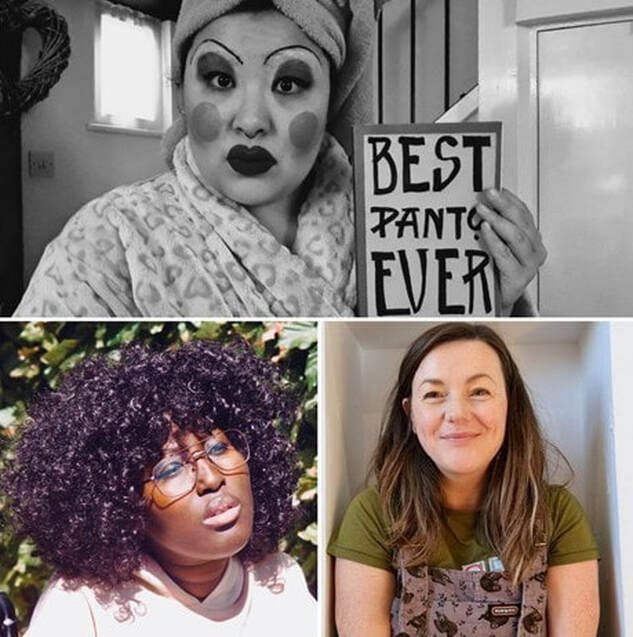 Image description - three portraits of disabled women. From top clockwise is Bea Webster a woman of dual heritage, Thai and Scottishwho wears pantomine make up with rosy cheeks, heavy eyeshadow and bright lips. She wears a dressing gown with a towel on her hair and is holding a sign saying 'Best Panto Ever'. Then there is Lisette Auton, a white woman with long brown hair, smiling and wearing a green t-shirt with dungarees. Finally is Miss Jacqui, a black woman with shoulder length afro hair and thin rimmed glasses. She is wearing a light pink hoody against a background of green leaves. As part of Staging Our Futures, a programme made possible by Arts Council England's Emergency Response Fund, Little Cog created three incredible commission opportunities for three incredibly talented disabled artists - Bea Webster, Lisette Auton and Miss Jacqui.
The time has come to share this new work in a live online premiere on 1 November at 5.00pm - who doesn't love a Sunday tea time treat? Bea Webster shares Dame Bevvy Crusher's Most Extraordinary Guide to Writing the Best Pantomime Ever, tbh. Miss Jacqui shares MMXX, and Lisette Auton shares Writing/Righting The Missing - A Choose Your Own Erasure Story R&D Little Cog's Artistic Director, Vici Wreford-Sinnott, dreamt up the Staging Our Futures programme as the company's response to completely unchartered territory. Vici says, "We knew the world had changed overnight, that everything was going to be different as we moved forward through the crisis for the arts and theatre. As disabled creatives we know how hard the fight has been over four decades to create an accessible and equitable arts envrionment. We didn't want to see the progress that had been made, also disappear overnight." The company knew it was time to stabilise, to be visible and to create opportunities for other disabled artists. Little Cog has always been strategic in it's approach to equality in theatre and this programme needed to have a range of elements. Vici continued, "As a company we knew we needed to create new work to challenge the narrative which had quickly developed around disabled people as a kind of blanket of vulnerability, as inactive and passive recipients of care. We're a vibrant group of individuals, living complex, interesting lives, and yes there are massive challenges in our society, many obstacles, barriers for, and appalling attitudes to disabled people. So we created a piece called Funny Peculiar featuring four dynamic disabled women to bust the myths of vulnerability whilst exploring the real risks we experience around inequality, for example in the loosening of lockdown, and in approaches to our healthcare and survival." The company wanted other disabled artists to be able to make work, to have time and space to explore. It's part of future-proofing. So a series of masterclasses was developed with guest artists sharing their skills online with disabled practitioners, which also meant disabled artists could stay connected and continue developing and sharing skills. Vici delivered two very successful Disability Equality Masterclasses for the North East film and theatre sector, and the three commissions were created. 'Liveness' has been a much missed ingredient as we have all social distanced and so Little Cog has hosted a number of live and online interactive events which have been very successful. "We all still need to connect, and we all still need to invest and exchange in performance and the arts, so part of our new commitment to artists and audiences is to find new ways to make that happen - to create a sense of connectedness through the work, and opportunities to engage and respond. And we've been blown away by the appetite for this and how much people have embraced our work in this area". Today someone told us "For me this is better than the real world in so many ways - I'm connecting with people I wouldn't otherwise, I probably wouldn't make the effort to go out in th cold and the rain, and it's all here, it's all safe and best of all it's all accessible in my own sitting room. I'm more connected to people now than I was before" - we think that's amazing. It won't be the case for everyone but is important to think about this for the inclusion and involvement of many disabled people in the cultural life of our nation. This premiere is the next stage in that process - so please follow this link for further information and to book your free places. Numbers are limited to make sure we have a high quality experience so please don't delay! A Little Cog, ARC Stockton and Northern Stage co-commission |
| Mandy Colleran has been involved in Disability Arts since the 1980s. She was a founder member of the comedy trio No Excuses which produced the legendary piece Know My Place, still available to view on youtube. Mandy was also a founder of North West Disability Arts Forum, later becoming it's director. She won a Lifetime Achievement Award from Dadafest in 2007. She was involved in Kaite O'Reilly's In Water I'm Weightless for National Theatre of Wales and has had a long career as a speaker, feminist and campaigner for disability rights. |
| Liz Carr is known to millions for playing Clarissa Mullery in the BBC's Silent Witness for 8 years but Liz is many things. She is an actor, comedian and disability rights activist. Others will know her from the Disabled/Deaf women’s comedy group, Nasty Girls or the BBC Ouch! podcast with Mat Fraser or her stand up with Abnormally Funny People, her Criptease routines or her passionate opposition to legalising assisted suicide through both campaigning and her creation of the show, Assisted Suicide - The Musical. |
| Bea Webster is a deaf actor who trained at the Royal Conservatoire of Scotland. She is an actor, drag artist, writer and speaker on Deaf equality. She is currently in rehearsals with the Royal Shakespeare Company for The Winter's Tale, and starred in Red Ladder's Mother Courage and Her Children, and Kaite O'Reilly's Peeling which toured in the UK last year. Bea is passionate about classical and contemporary texts in English and BSL, has published a poem in both BSL and English titled Long Lost Lover, about her birthplace of Thailand. Vici is Artistic Director of Little Cog, writing and touring nationally a number of pieces of work including, Butterfly which was named Best One Person Play by the British Theatre Guide, Another England, Lighthouse and her recent commissions The Wrong Woman Discussions and Siege for ARC Stockton and Home Manchester can still be seen online as part of the Homemaker's commissions. She is a lifelong feminist and activist, regularly speaking and campaigning on disability rights matters and the role of culture and the arts in equality. She is a founding member of both Disconsortia and We Shall Not Be Removed. |
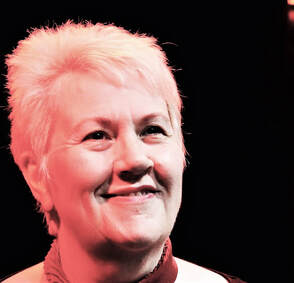 Vici Wreford-Sinnott, a white woman in her fifties. She has blond spiky hair and has a red scarf round her neck.
Vici Wreford-Sinnott, a white woman in her fifties. She has blond spiky hair and has a red scarf round her neck. Change makes us feel refreshed, optimistic and energised for action.
Why not harness some of the opportunities afforded us by our strange new world and create islands of hope and energy in our work around change, through a different way of looking at things.
You work in the arts – you’re already an innovator. Why not take part in these unique Little Cog Masterclasses to look at how we begin to remove barriers to the arts for disabled people in our communities. We’d love to support you to understand what this can look like and share some simple things you can do to bring in richer stories and larger audiences of disabled people.
What has lockdown taught us and brought us about how we approach a safe re-opening of art ad culture, and where does art and culture now sit? Is it only in buildings or can we make local and local and global connections through the power of the digital. What might new models of practice look like?
And why is any of this important?
We all know the stats aren’t great around the representation of disabled people in employment on the arts, in getting work programmed and in being involved in organisational decision-making. We reckon you already know it’s time to take stock of disability equality practices in the arts, and to improve this we’d like to give you and your organisation some information and skills on how to do that. And we’ll also share how to tap into a rich seam of untold stories from new perspectives and build new relationships with us and other disabled artists.
Our Disability Equality Masterclasses are led by Little Cog’s artistic director Vici Wreford-Sinnott, who is a key figure and leading voice in the UK Disability Arts sector. The two Masterclasses are identical so you only need to sign up for one and they are aimed at North East England based venues, organisations, and companies and would be useful for artistic and executive directors, management teams, producers, senior decision-makers, and programmers. It will be supportive, non-finger pointing and solution focussed. And something that starts with a pub quiz can’t be that difficult to take part in surely!
Dates and Times
Tuesday 15 September 1.30-3.30pm
Tuesday 22 September 1.30-3.30pm
Some kind words from ARC, with whom we developed Cultural Shift, a complete model for embedding disabled-led work into the heart of your art.
“We were genuinely challenged to rethink and change the way we work with disabled people. New language, new approaches and gaining a new knowledge of disability that helped us understand why we need to do things a certain way, rather than just changing because we want to tick boxes. People have seen really brilliant work and had their own perceptions challenged by the work they have seen.”
Annabel Turpin, Chief Executive, ARC
If you are interested in a larger team taking part in these masterclasses, for example for your whole organisation or for a significant number of members of your team, we can schedule a separate session for you. There may be cost implications but we do have some subsidy to support this.
Booking Link: https://www.eventbrite.co.uk/e/disability-equality-masterclass-with-vici-wreford-sinnott-tickets-11727931258
More about Little Cog here on our website www.littlecog.co.uk
Our latest production
Please encourage the people you work with to check out our Funny Peculiar online launch party on Thursday 24 September. Booking essential. Written and directed by Vici Wreford-Sinnott, this is Little Cog's latest lockdown production as part of their Staging Our Futures programme. The piece stars Liz Carr of Silent Witness fame, Mandy Colleran, a comedian and activist, and Bea Webster who is currently an associate of both the Royal Shakespeare Company and The Playwright's Studio of Scotland.
Zsa Zsa, Raquelle, Blanche and Cuba are in quarantine – four disabled women locked down, locked in, shut up and shouted down. While the rest of the nation is in meltdown, it takes a lot to phase this quartet. The new terrain is worrying and frustrating but these women are prepared - perhaps they have waited for a moment like this their whole lives.
In a sequence of four original, cross-cutting, witty and wise monologues, broadcasting from their own homes during quarantine, these women are myth-busters giving their all to expose the lie of vulnerability.
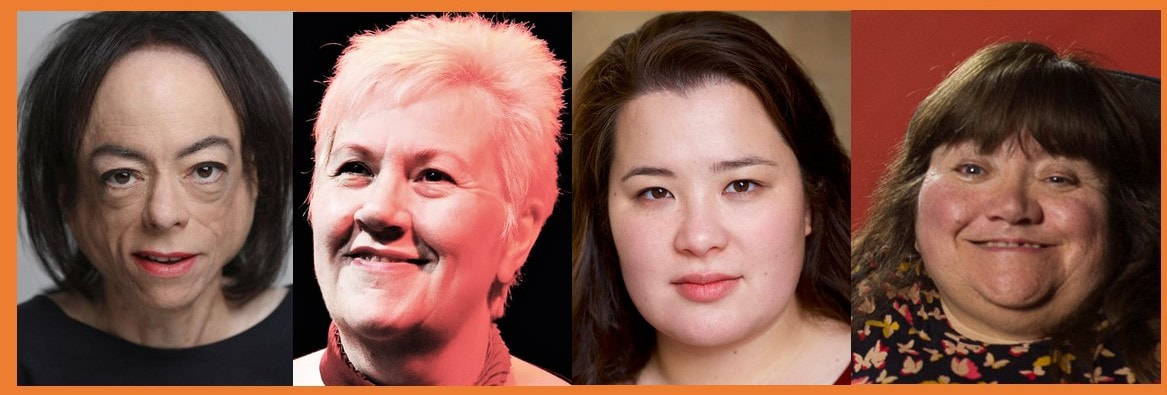
Image description - four portraits of disabled women. From left to right there are Liz Carr who is a white woman in her forties with a dark brown bob haircut, who is wearing a black top. Next is Vici Wreford-Sinnott, a white woman in her fifties. She has blond spiky hair and has a red scarf round her neck. Next to Vici is Bea Webster who is a woman of dual heritage, Thai and Scottish, with long brown hair and a red top. She is in her late twenties. And at the right is Mandy Colleran, a white woman in her fifties with long hair and a black top with butterflies on it.
Occasional Freelance Speed Typist for Live Transcription £30 per hour
We are seeking a fast, efficient and accurate typist to create transcriptions of live conversations for our meetings. You will be proactive, enthusiastic and extremely reliable. All work is online so you need to be able to work from home.
We have a number of one and two hour meetings coming up over zoom platforms over the next three months, at different times of the day and occasional evenings, and require an extremely well organised person to create accurate live captions for us. It is not a regular time and day of the week and we would need to be able to call on you as and when required, although we can book a series of six advance sessions in immediately.
You do not need a qualification and it may be that you are a freelancer working in the arts. A knowledge of the arts would be useful but not essential.
You will be responsible for your own tax and NI as this is a freelance position. The rate of £30 per hour includes your prep time and a copy of the transcript after the meeting. We need someone who can start immediately please.
THIS POSITION IS NOW FILLED - THANK YOU TO EVERYONE FOR THEIR INTEREST.
We are seeking a fast, efficient and accurate typist to create transcriptions of live conversations for our meetings. You will be proactive, enthusiastic and extremely reliable. All work is online so you need to be able to work from home.
We have a number of one and two hour meetings coming up over zoom platforms over the next three months, at different times of the day and occasional evenings, and require an extremely well organised person to create accurate live captions for us. It is not a regular time and day of the week and we would need to be able to call on you as and when required, although we can book a series of six advance sessions in immediately.
You do not need a qualification and it may be that you are a freelancer working in the arts. A knowledge of the arts would be useful but not essential.
You will be responsible for your own tax and NI as this is a freelance position. The rate of £30 per hour includes your prep time and a copy of the transcript after the meeting. We need someone who can start immediately please.
THIS POSITION IS NOW FILLED - THANK YOU TO EVERYONE FOR THEIR INTEREST.
| Staging Our Futures is an imaginitive artistic programe created by Little Cog to ensure that exciting new work by disabled theatre makers is created and is visible. It's more important than ever to champion and give a platform to disabled artists who are expanding the boundaries of how we work and what work is made. Staging Our Futures has been created by Little Cog during the coronavirus pandemic, supported through Arts Council England Emergency Response Funds. This whole episode has come as a massive shock to everyone and to theatre particularly. We see |
real difficulties and freelancers struggling and have nothing but solidarity. It has also been really impressive to see the very many responses both organisations and individuals have made. We are incredibly proud of the disability community who, again are finding ourselves disadvantaged and excluded from art and culture in its new digital form, have rallied and galvanised a brand new movement promoting accessibility, sustainability, visibility and equality.
As a theatre company, we were very concerned that a shut down of culture would mean that freelance disabled artists would be without work and a voice,and were committed to ensuring that our repsonse would be both to strengthen our organisation and our strategic role in the longer term, and also create artistic opportunities for artists through both Staging our Futures and Disconsortia's At The Table programme, with information on that to follow soon.
We've recently launched Funny Peculiar, written and directed by Vici Wreford-Sinnott and we are now delighted and excited to announce our three Staging Our Futures Commissioned artists.
We invited people to take part who defy expectations, question the world we live in and deliver powerful performance work. We want to support vibrant and pioneering artists who make work that provokes, excites and engages audiences. So when we talk about the future - let's ensure we future-proof the work of disabled artists and the environments in which they make and share their work.
The creation of these commissions comes at a time of massive upheaval in the arts and theatre worlds, and at a time of crisis for communities of disabled people. It is clear that there are calls for a change to a system that does not work for all. We want to change the system. We want to reframe the narratives around disabled people and our stories, and we want to give space to rethink what power means.
We are also delighted to announce and welcome the appointment of Robyn Keynes as Producer of the Staging Our Futures programme, who will be with the company until November, steering us through our various commissions, Funny Peculiar, a Masterclass Programme which includes materclasses by, with and for disabled artists and will present Disability Equality materclasses for the arts sector in the North East.
We're proud to introduce you to Lisette Auton, Miss Jacqui, Bea Webster and Robyn Keynes.
As a theatre company, we were very concerned that a shut down of culture would mean that freelance disabled artists would be without work and a voice,and were committed to ensuring that our repsonse would be both to strengthen our organisation and our strategic role in the longer term, and also create artistic opportunities for artists through both Staging our Futures and Disconsortia's At The Table programme, with information on that to follow soon.
We've recently launched Funny Peculiar, written and directed by Vici Wreford-Sinnott and we are now delighted and excited to announce our three Staging Our Futures Commissioned artists.
We invited people to take part who defy expectations, question the world we live in and deliver powerful performance work. We want to support vibrant and pioneering artists who make work that provokes, excites and engages audiences. So when we talk about the future - let's ensure we future-proof the work of disabled artists and the environments in which they make and share their work.
The creation of these commissions comes at a time of massive upheaval in the arts and theatre worlds, and at a time of crisis for communities of disabled people. It is clear that there are calls for a change to a system that does not work for all. We want to change the system. We want to reframe the narratives around disabled people and our stories, and we want to give space to rethink what power means.
We are also delighted to announce and welcome the appointment of Robyn Keynes as Producer of the Staging Our Futures programme, who will be with the company until November, steering us through our various commissions, Funny Peculiar, a Masterclass Programme which includes materclasses by, with and for disabled artists and will present Disability Equality materclasses for the arts sector in the North East.
We're proud to introduce you to Lisette Auton, Miss Jacqui, Bea Webster and Robyn Keynes.
| | Lisette Auton Lisette Auton does stuff with words: disabled writer, activist, poet, spoken-word artist, actor, theatre-maker and creative practitioner. She is an award-winning poet who is widely published and is known for her energised performances in the spoken word scene. Lisette is a Penguin WriteNow mentee and has completed her first novel. She was the 2019 Early Careers Fellow for Literature at Cove Park supported by the Fenton Arts Trust, and is on the TSS Publishing list of Best British & Irish Flash Fiction. Lisette works with many creative collaborators to create unique and innovative cross artform works which have featured at MIMA, Kirkleatham Museum and online. She is currently Assistant Producer for Disconsortia's At The Table programme. Lisette has performed at Northern Stage, ARC, The Southbank Centre and the Sage, in pubs, in a crypt, at festivals, indoors, outdoors, on a bridge and in a launderette. She uses her platform as a performer, writer and theatre-maker to make the invisible visible. www.lisetteauton.co.uk Miss Jacqui Miss Jacqui is a spoken word artist, songwriter, theatre-maker and facilitator. She knows a lot about working with the cards that you are dealt. Especially because she is someone who always tries to challenge societal perceptions about what it actually means to be a black woman with a disability. “When you are a minority in a minority in a minority, you have no choice but to stand out.” – Miss Jacqui Miss Jacqui’s love for theatre started when her mother signed her up to an inclusive drama group when she was 13 to get her out of her introverted shell; and she never looked back. Miss Jacqui's love for Spoken Word/Poetry came about when she joined 'Poets Platform' led by Kat Francois. Miss Jacqui honestly believe that creativity is a universal language. Miss Jacqui has worked with Halfmoon Young Peoples Theatre, Theatre Royal Stratford East, National Youth Theatre and Roundhouse just to name a few. Miss Jacqui has performed at various locations like the Paralympic Team Welcoming Ceremony as well as the Opening Ceremony. “I want to break as many stereotypes as possible when it comes to me being a black woman with a disability.” - Miss Jacqui Bea Webster Bea Webster is a deaf actor who trained at the Royal Conservatoire of Scotland. She is an actor, drag artist, writer and speaker on Deaf equality. She is currently in rehearsals with the Royal Shakespeare Company for The Winter's Tale, and starred in Red Ladder's Mother Courage and Her Children, and Kaite O'Reilly's Peeling which toured in the UK last year. Earlier in lockdown Bea took part in Vici Wreford-Sinnott's The Wrong Woman Discussions, featuring five disabled women performance makers talking about their experiences, transgressing expectations and bringing agency for disabled women to performance. Bea is passionate about classical and contemporary texts in English and BSL, has contributed to BBC Social, has hosted several events, and has published a poem in both BSL and English titled Long Lost Lover, about her birthplace of Thailand. Robyn Keynes Robyn is a theatre producer and general manager with over nine years of experience across the subsidised, commercial and independent theatre sectors. She has worked for companies including the National Student Drama Festival, commercial producers Smith & Brant, and new writing company HighTide. She has produced plays, with a particular focus on new writing, alongside musicals, events and festivals. |
The work produced from the commissions will be shared online on 1 November 2020, but we will be releasing artist profile features of all commissioned artists, staring with Lisette talking about her phenomenal Writing/Righting the Missing work - a piece looking at the world through a new lens, without fear. Lisette said of her commission plans, "I want it to be radical, wild, challenging, quiet, kind and brave. I want it to push me as a performer and a writer. I want it to be creatively accessible, built in as part of the creative process right from concept."
We'll be launching our Masterclass programme soon and you'll be able to see Funny Peculiar with Liz Carr, Mandy Colleran, Bea Webster and Vici Wreford-Sinnott broadcast online from 31 August 2020.
We'll be launching our Masterclass programme soon and you'll be able to see Funny Peculiar with Liz Carr, Mandy Colleran, Bea Webster and Vici Wreford-Sinnott broadcast online from 31 August 2020.

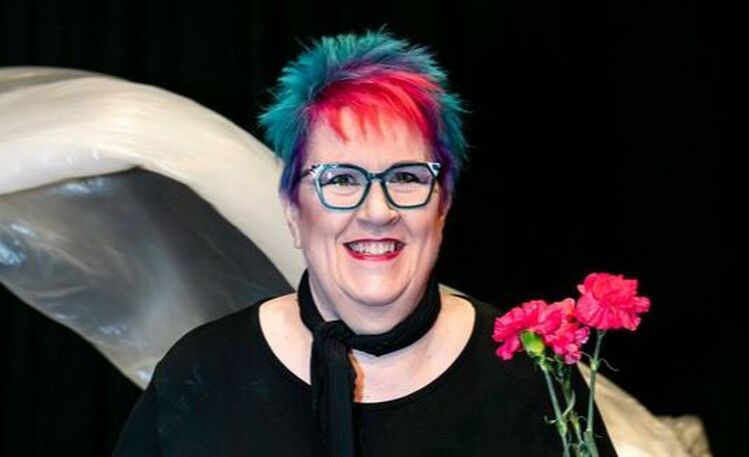
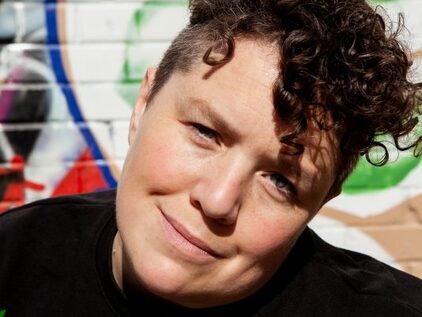
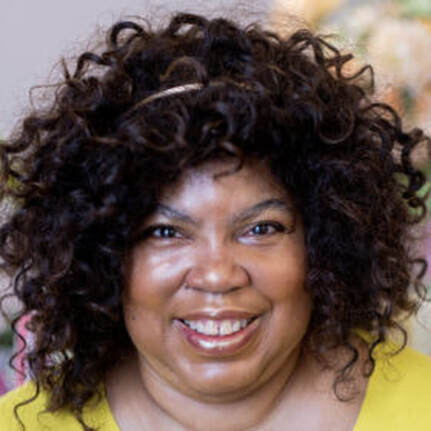
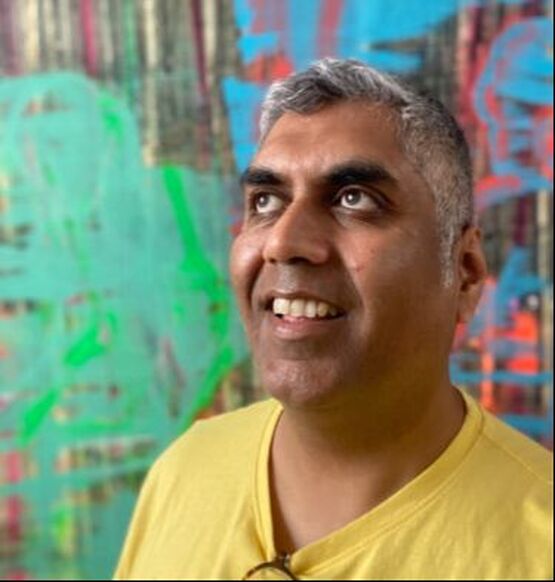
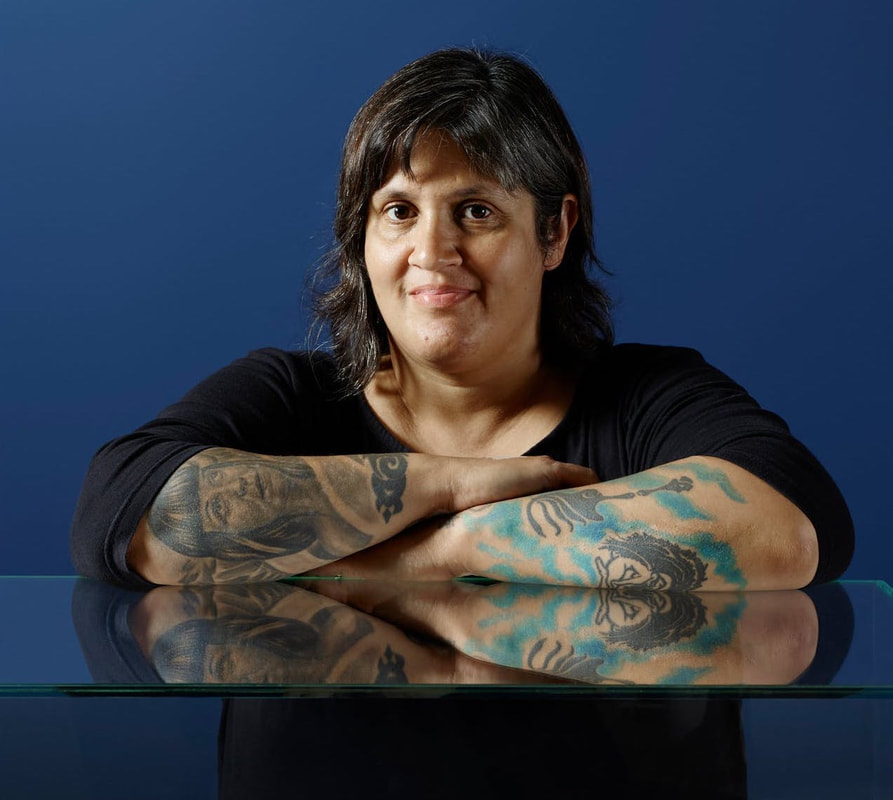
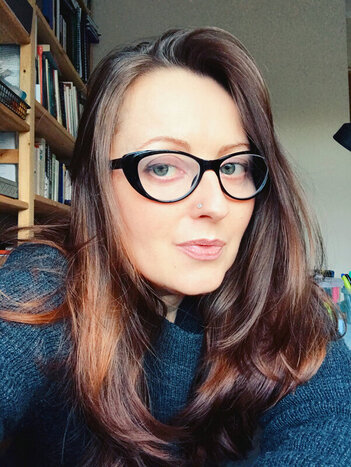
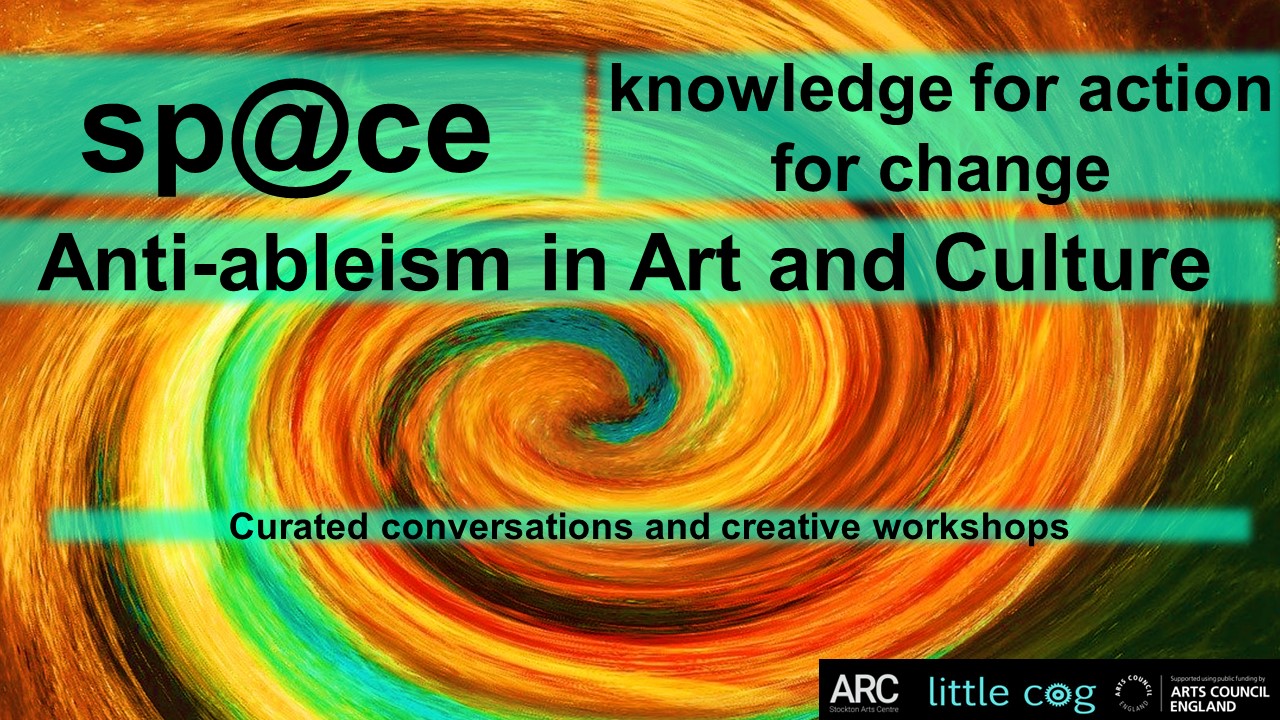
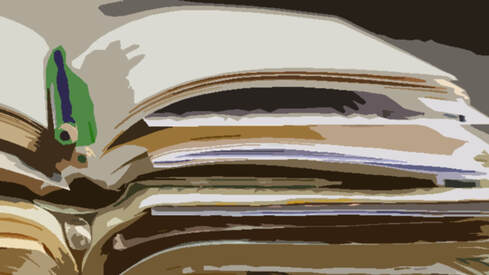
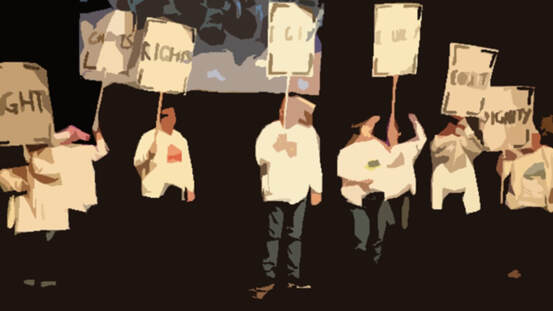
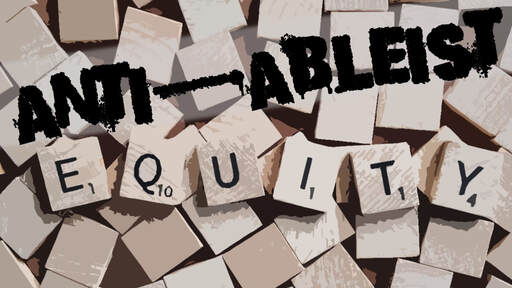
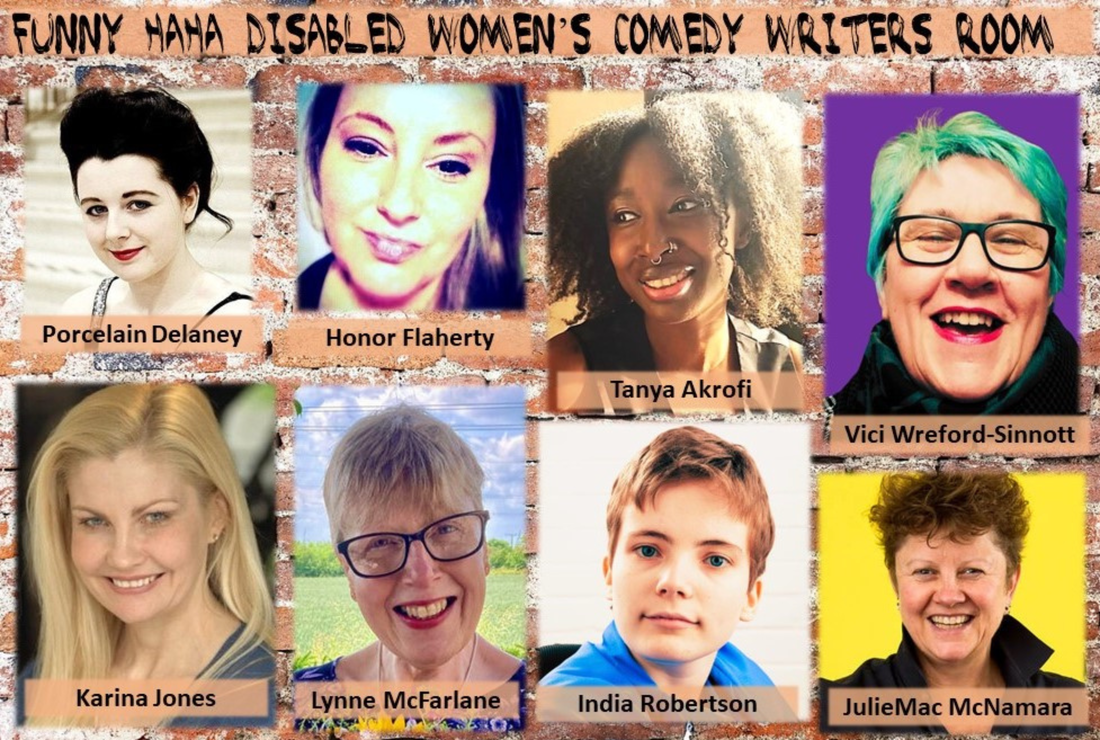
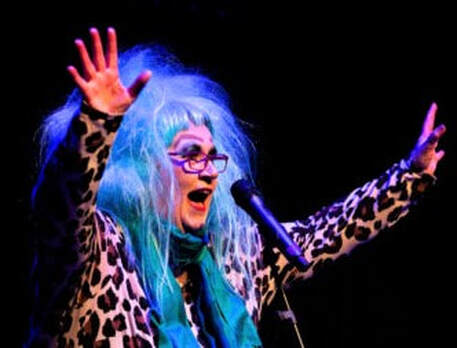
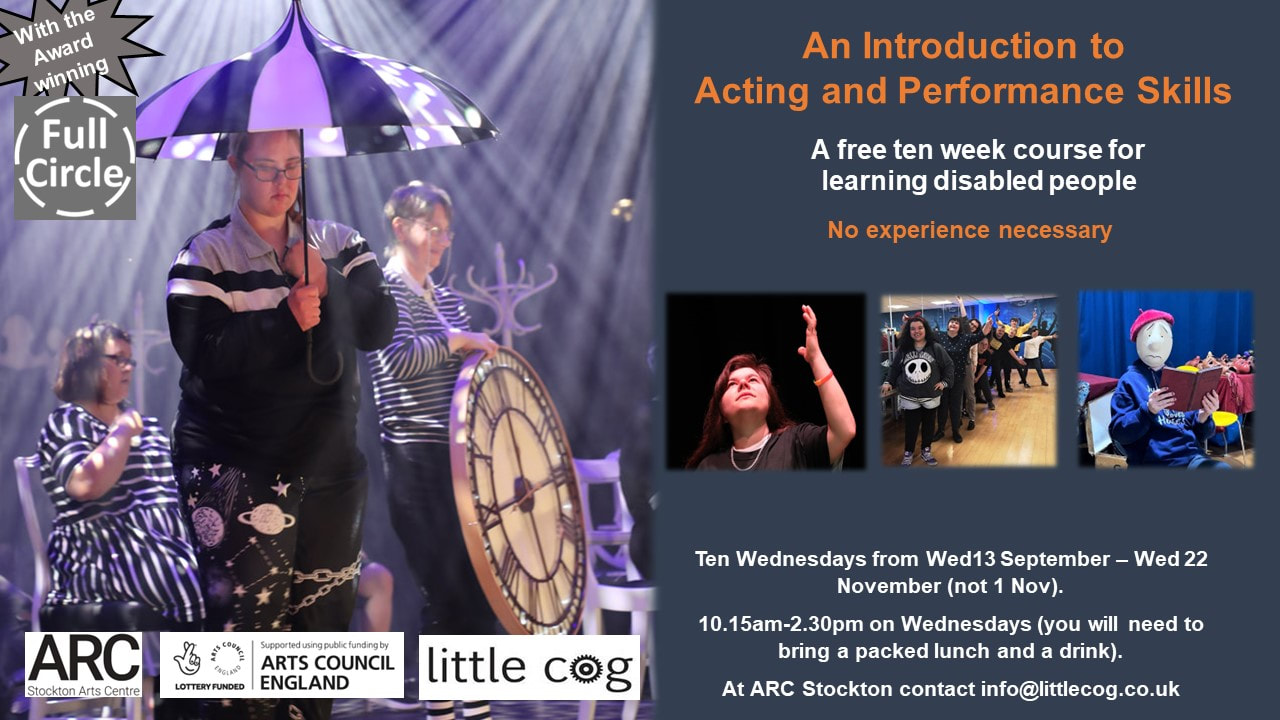
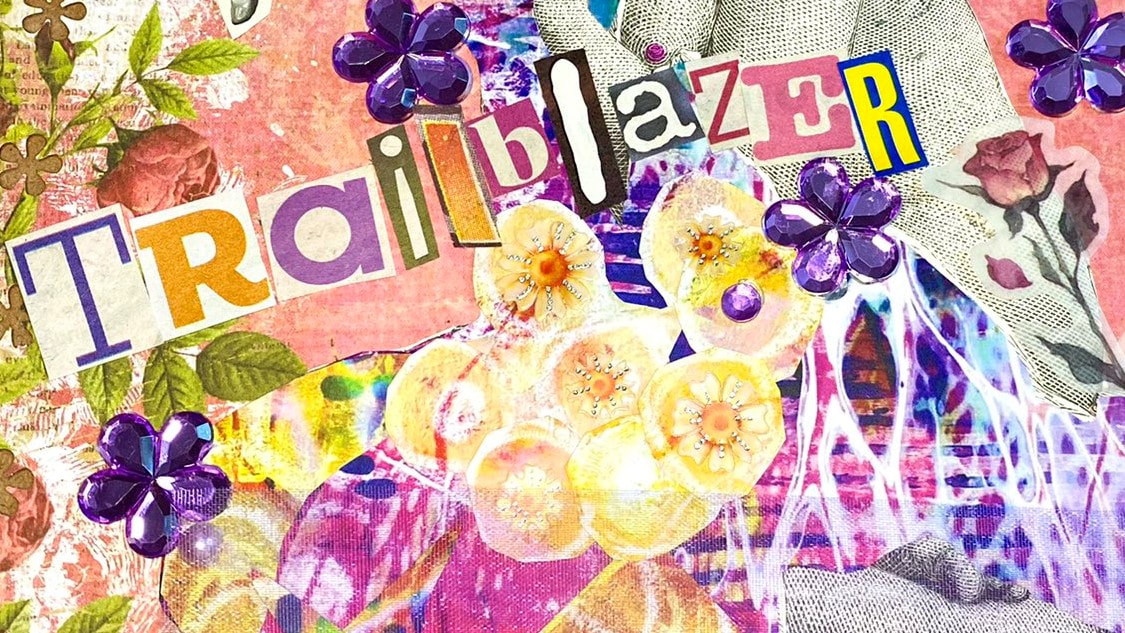
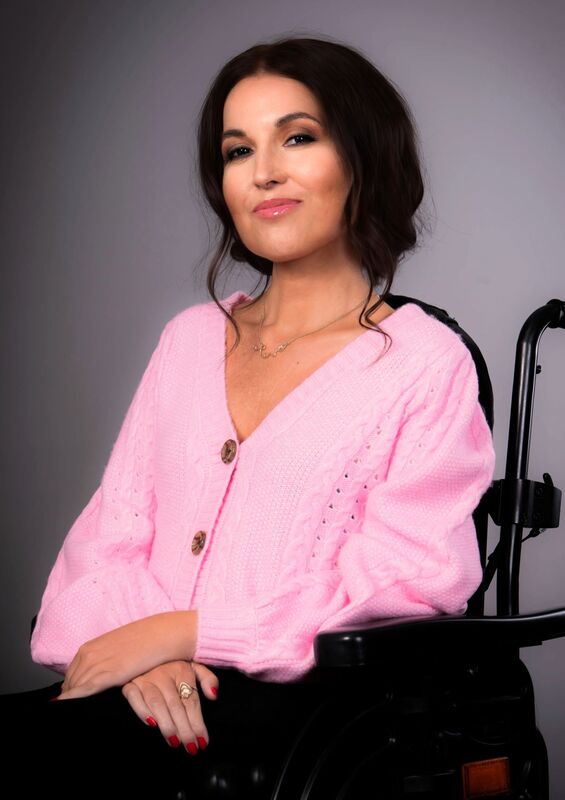
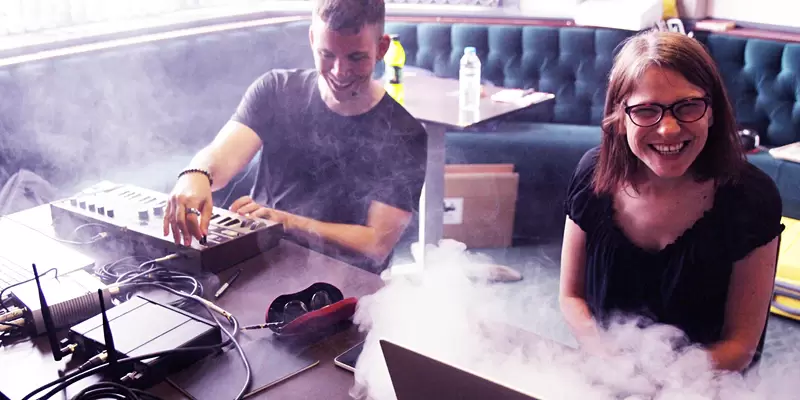
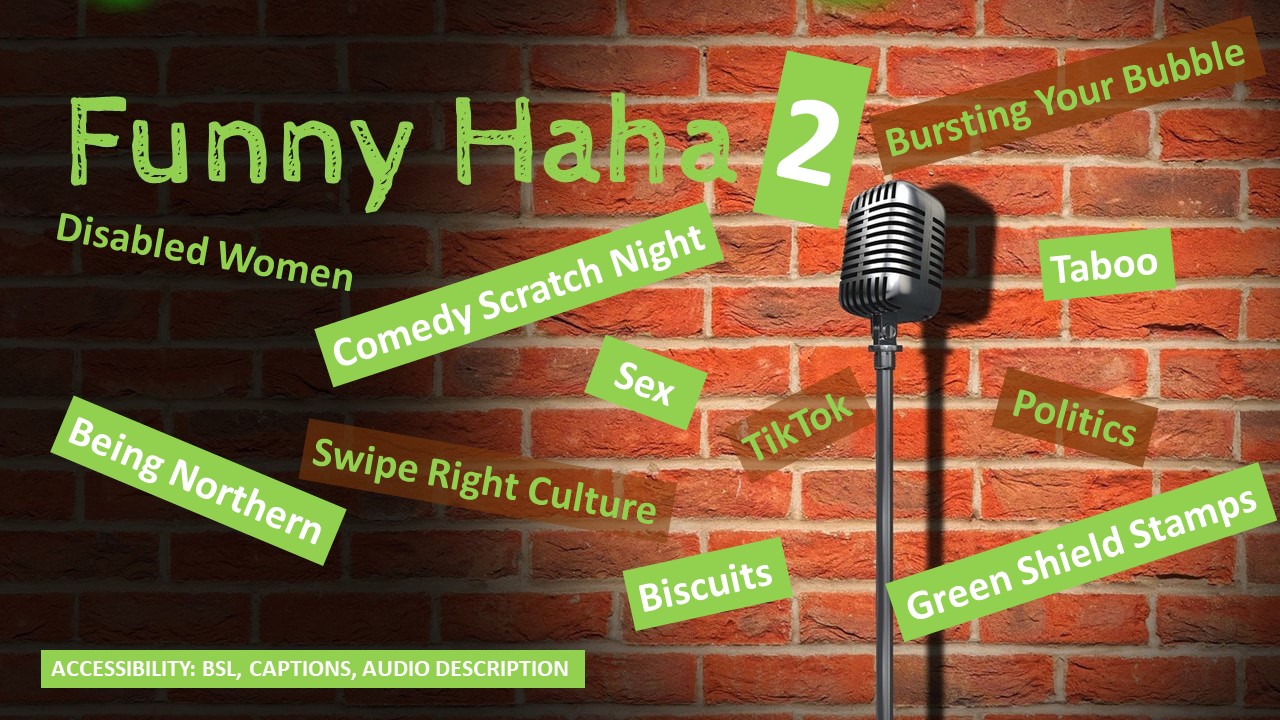
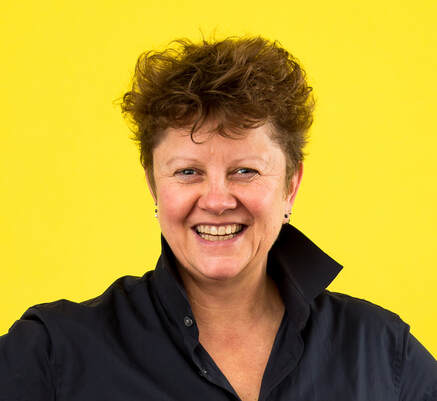
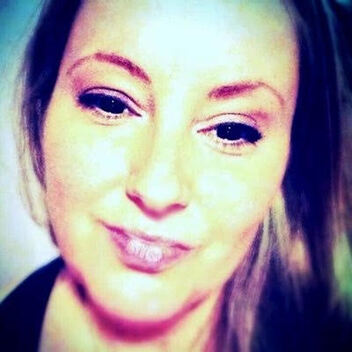
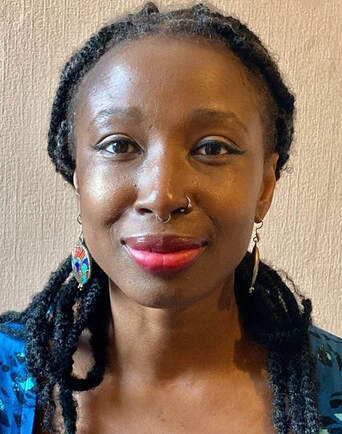
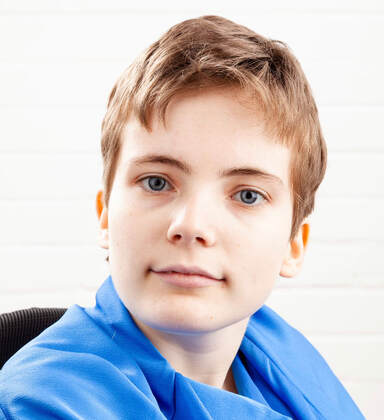
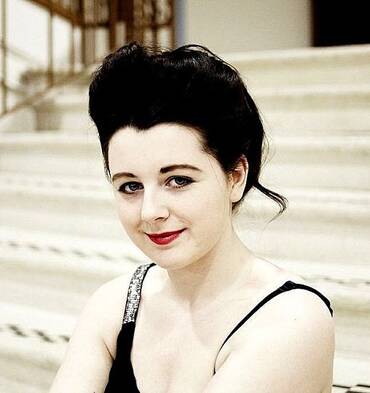
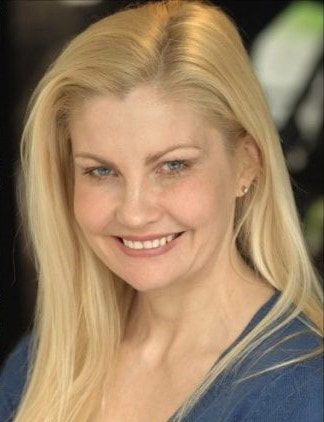
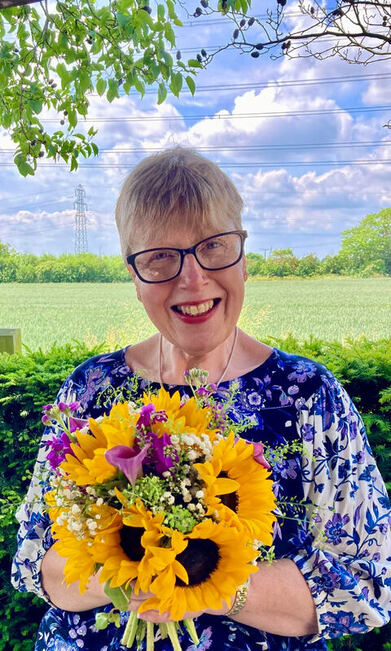
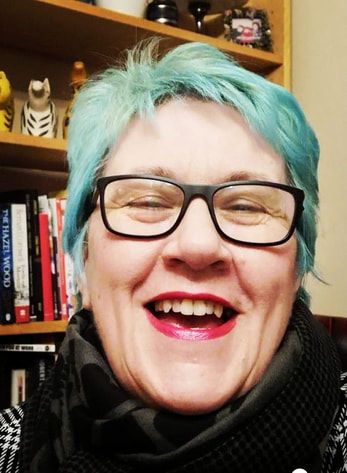
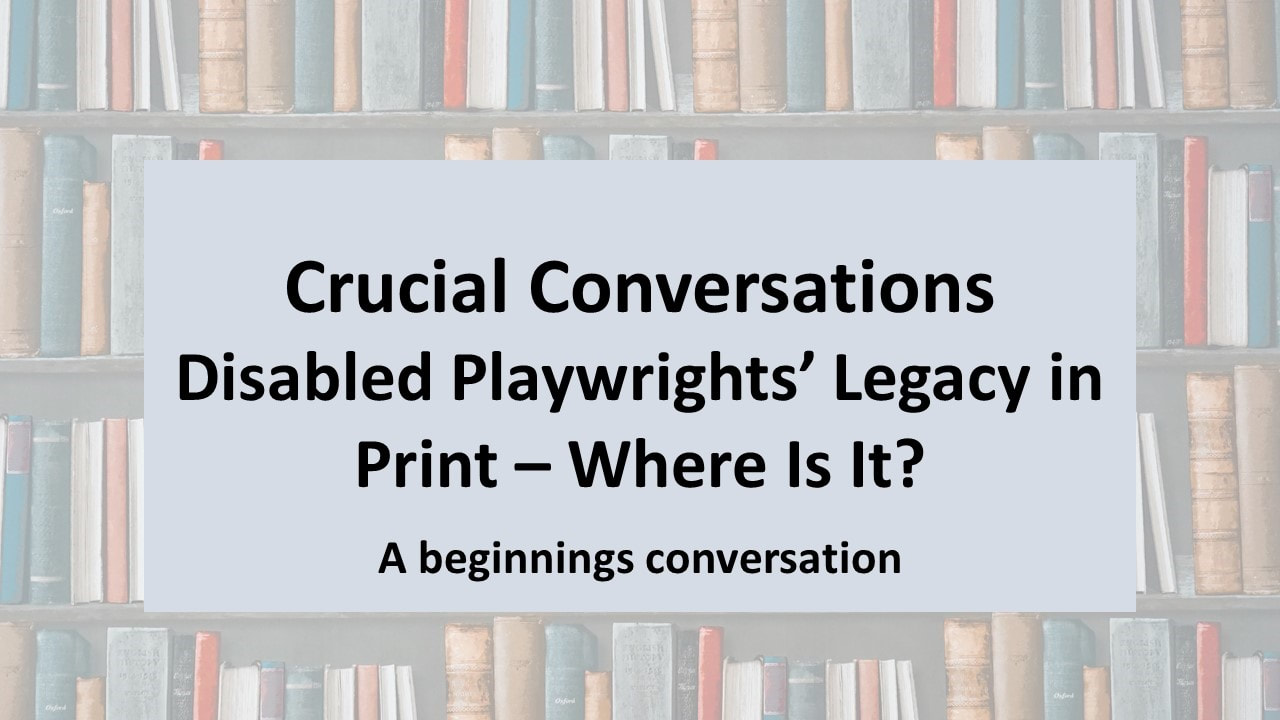
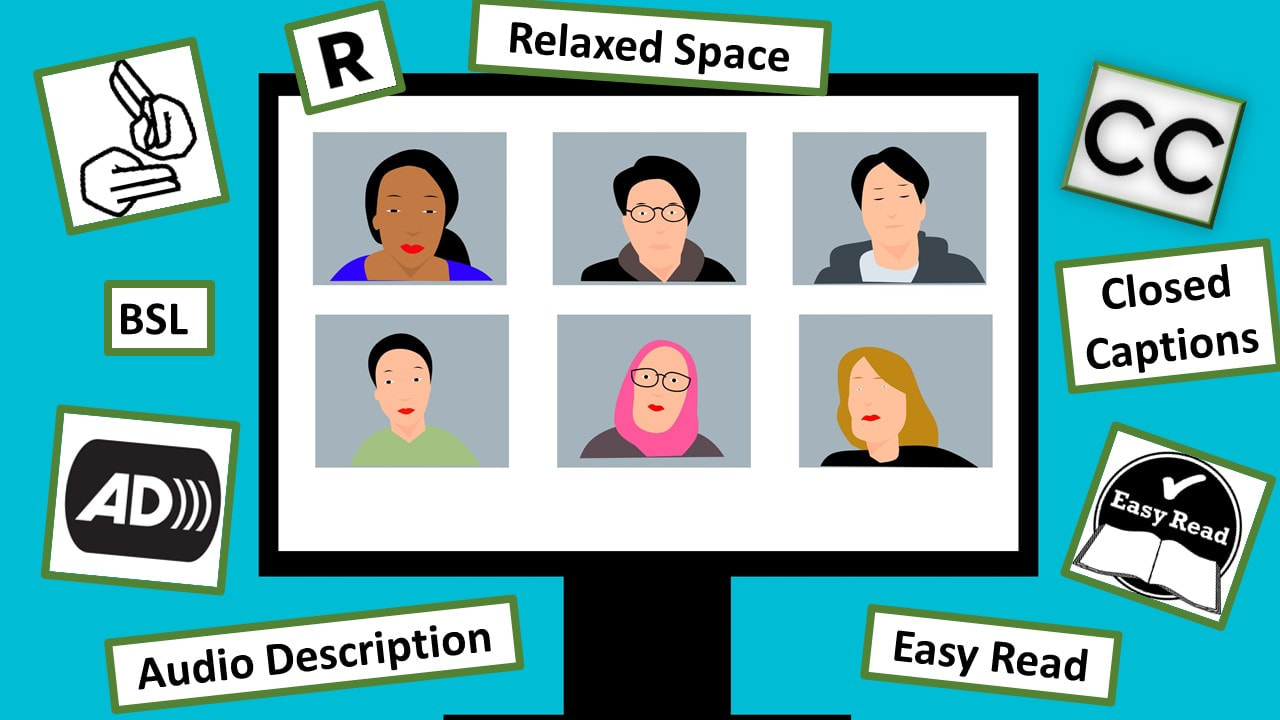
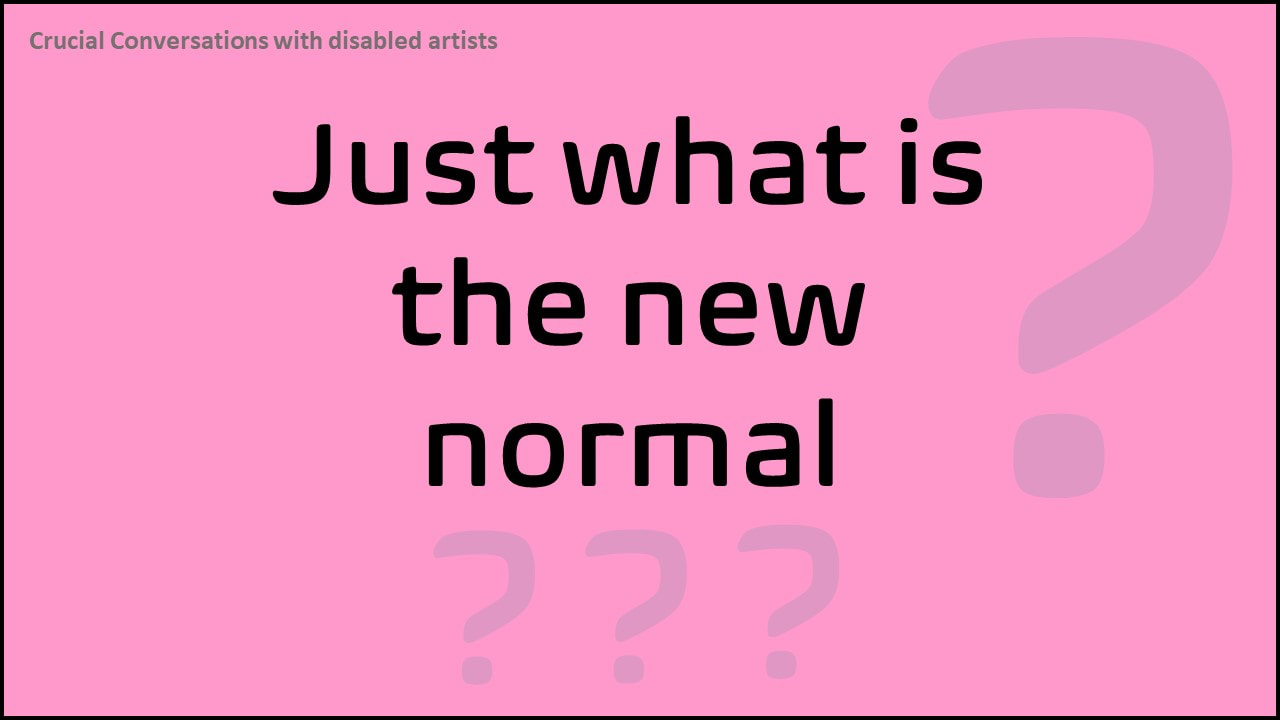
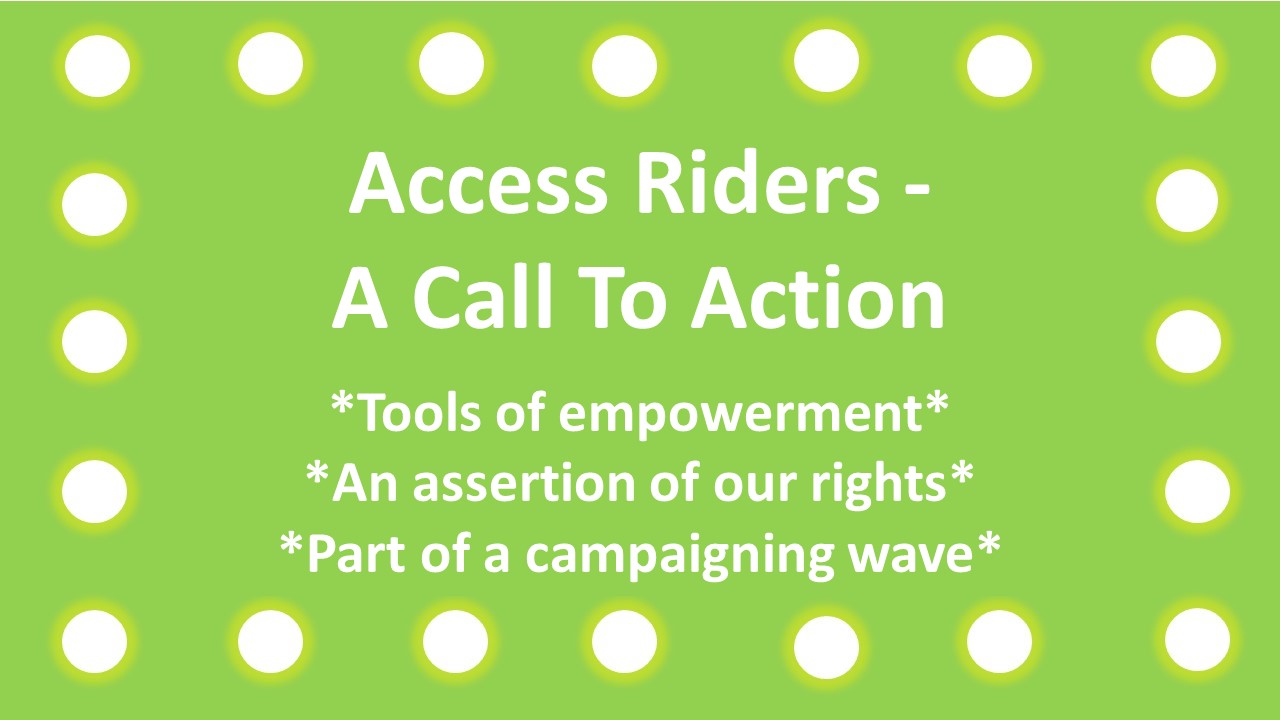

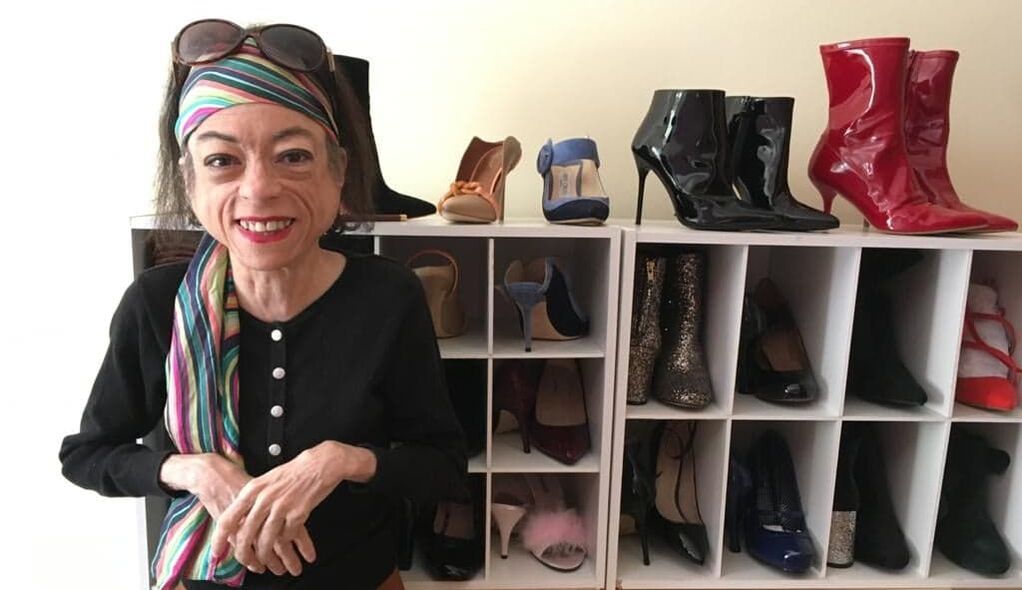
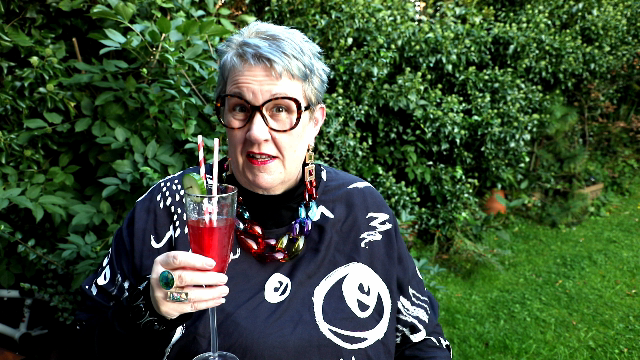
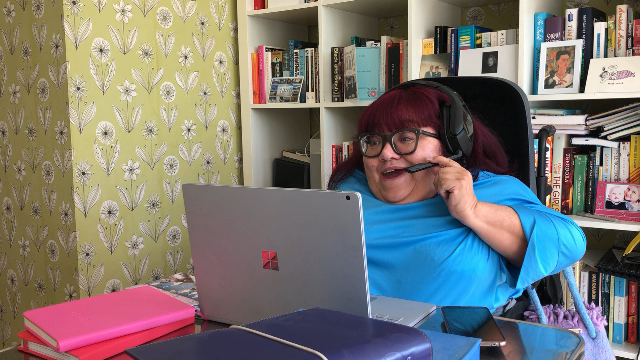
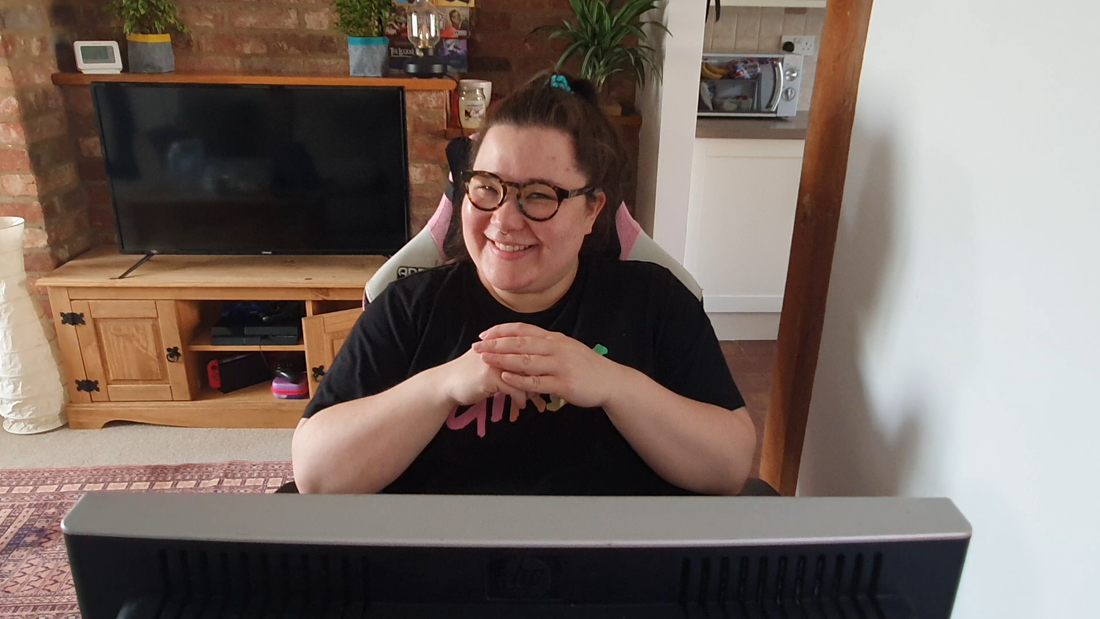
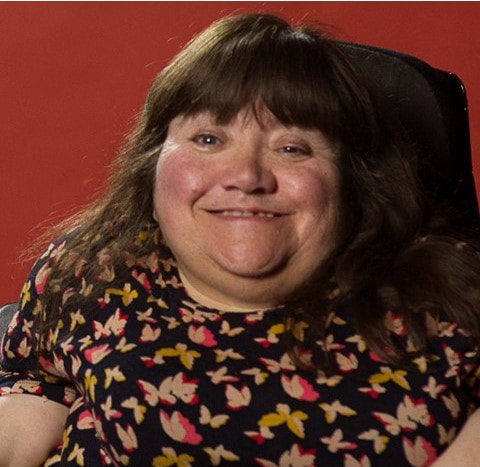
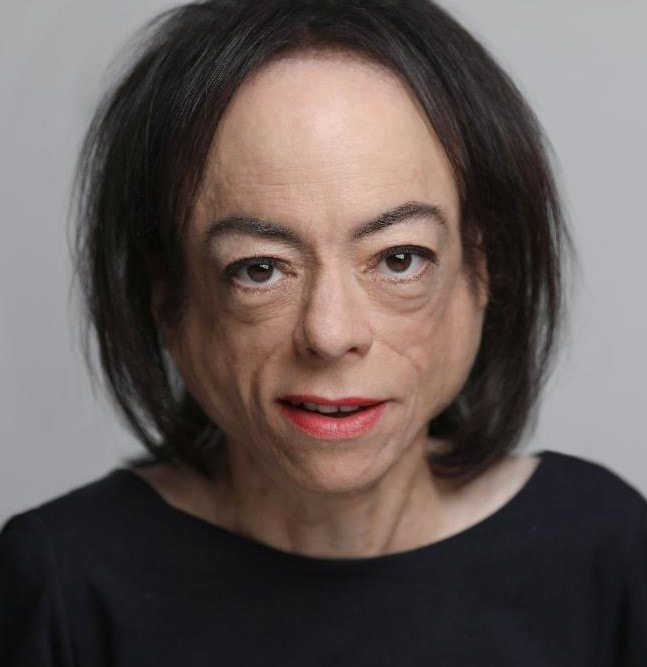
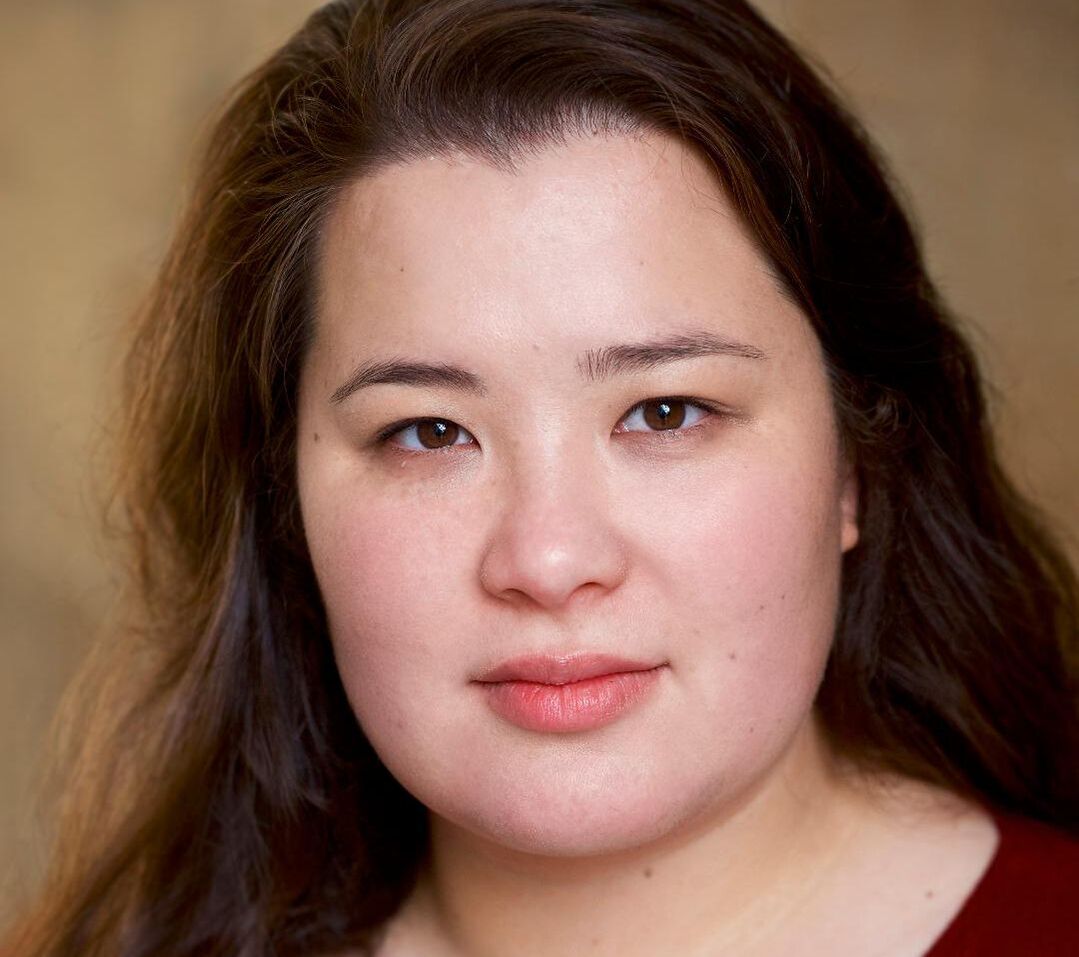
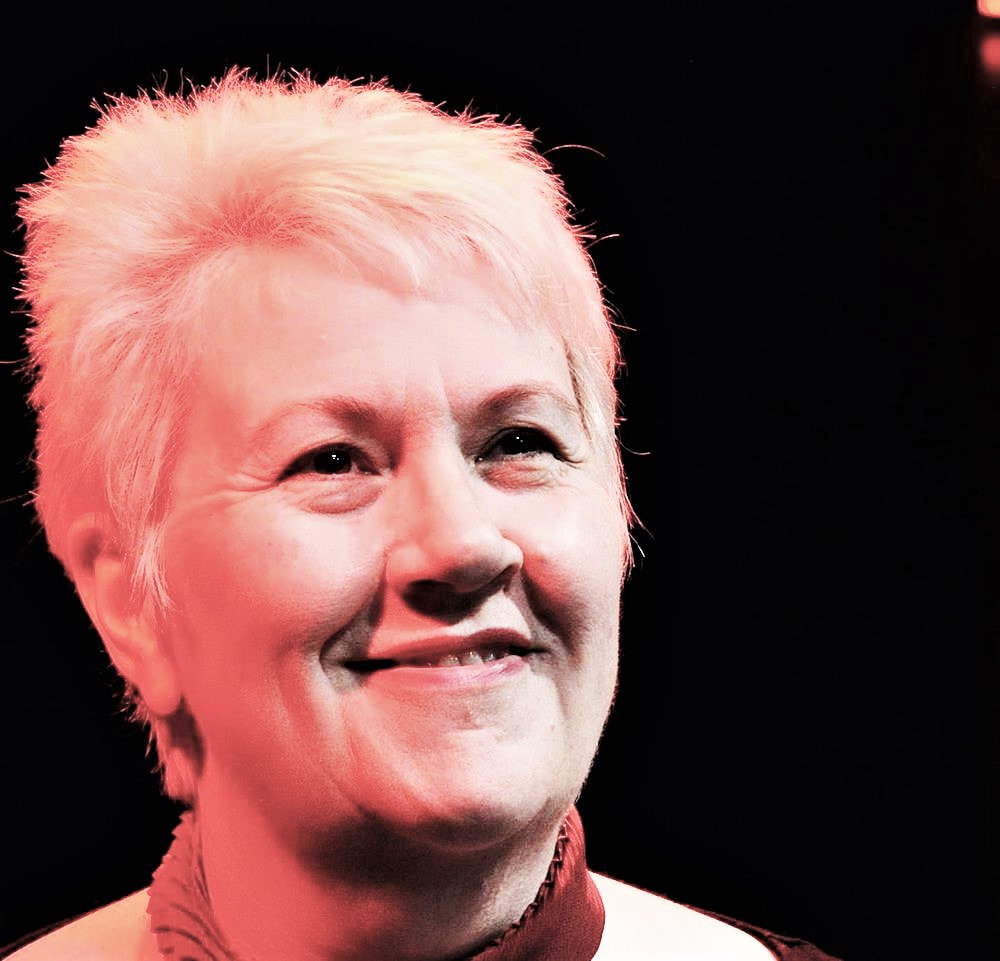
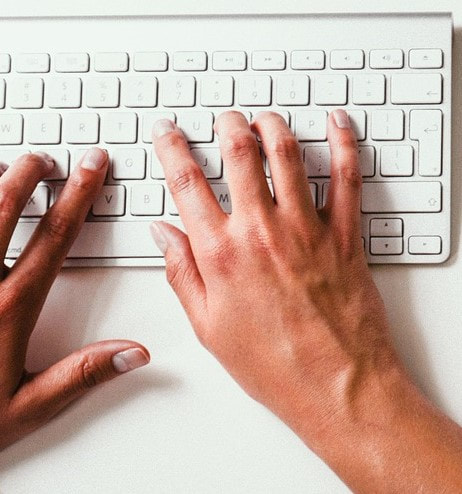

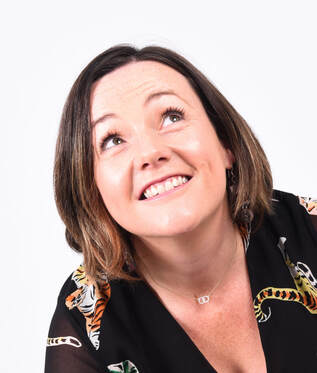
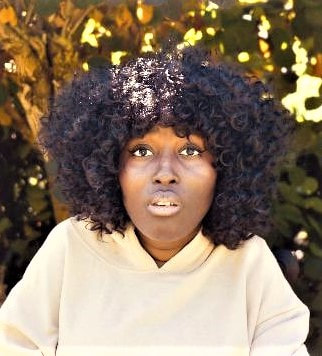
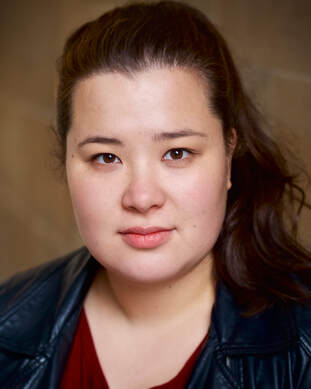
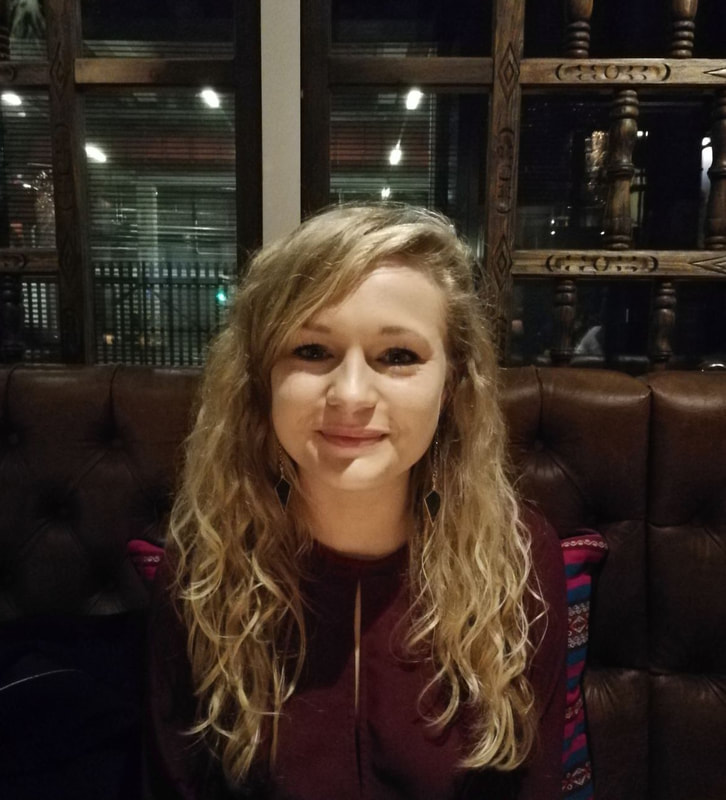
 RSS Feed
RSS Feed

